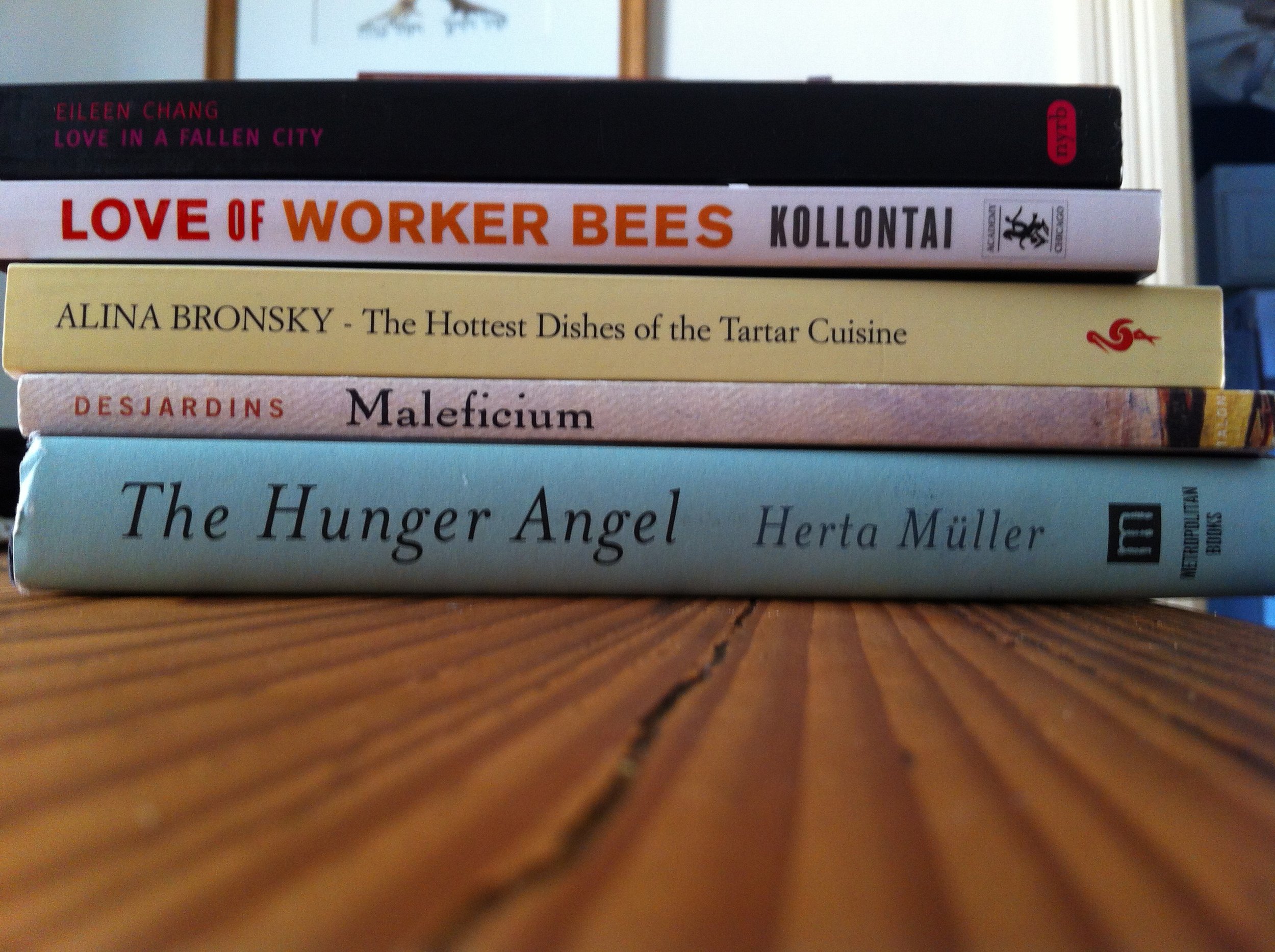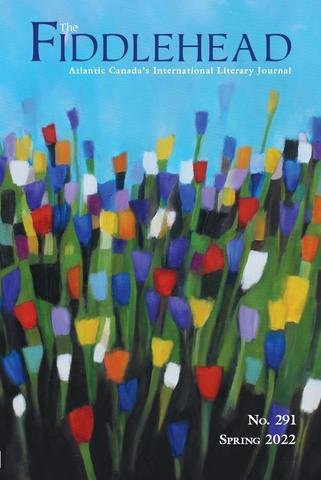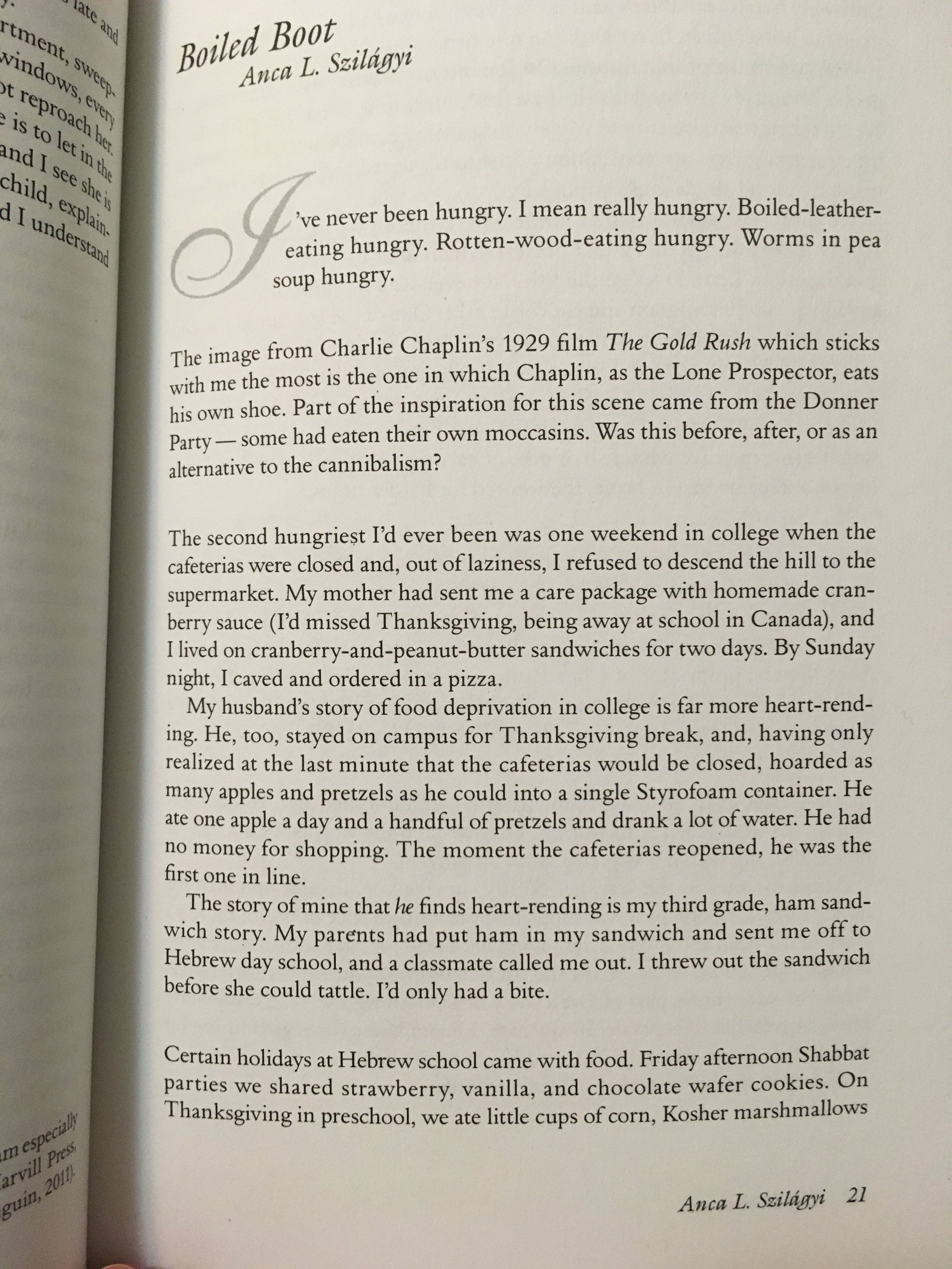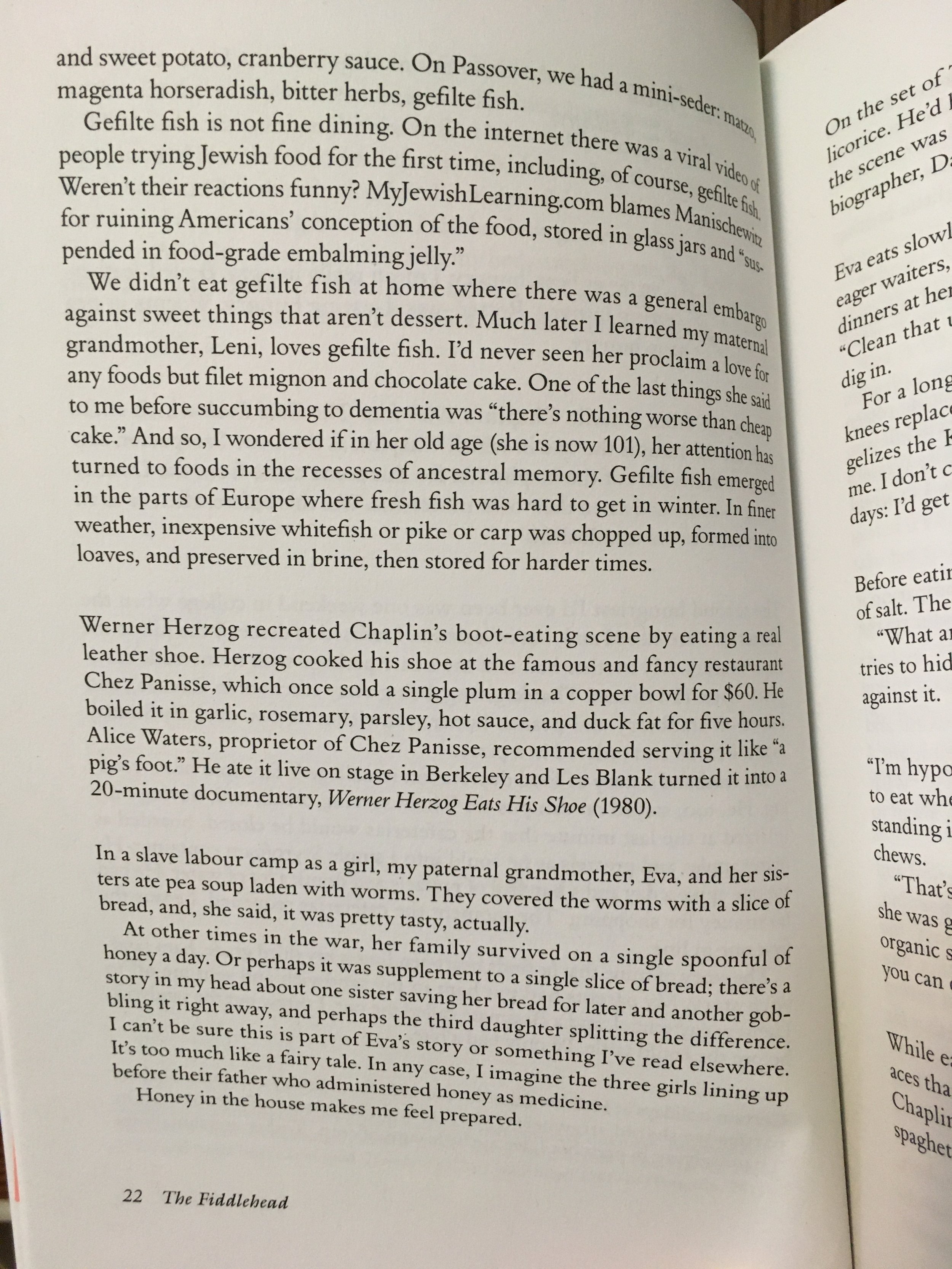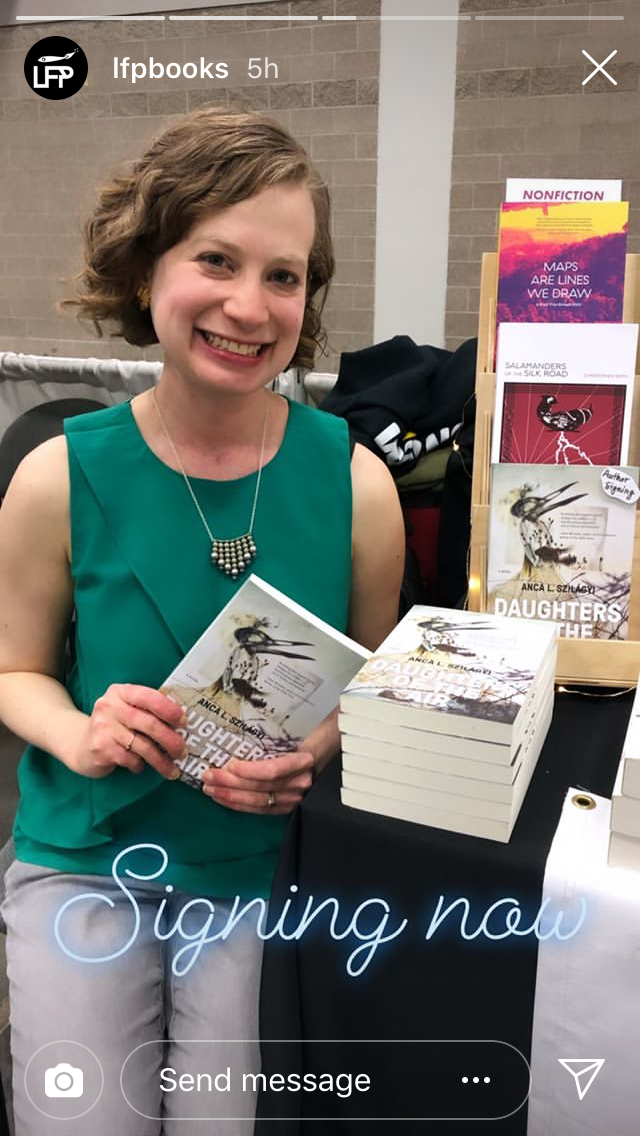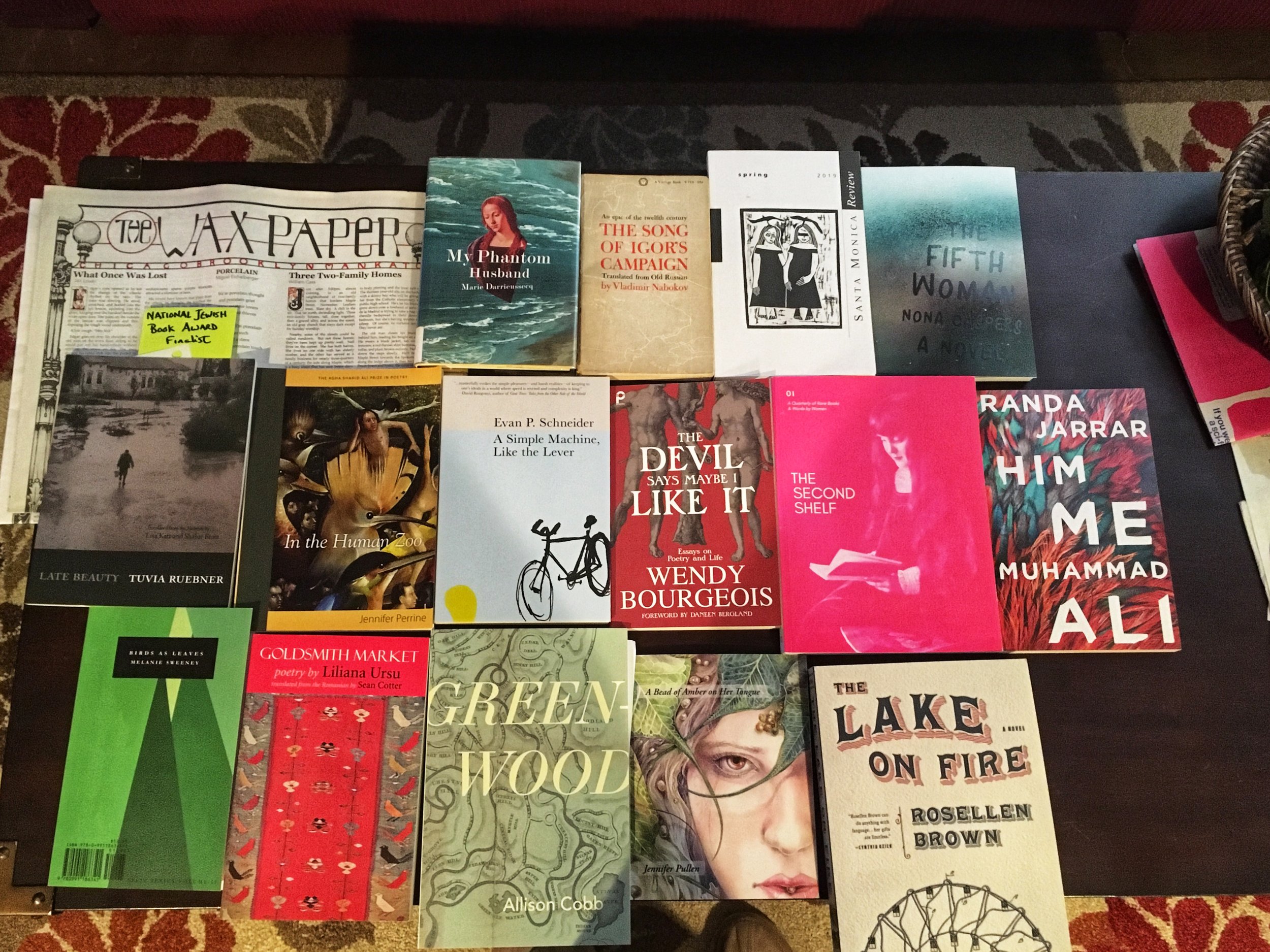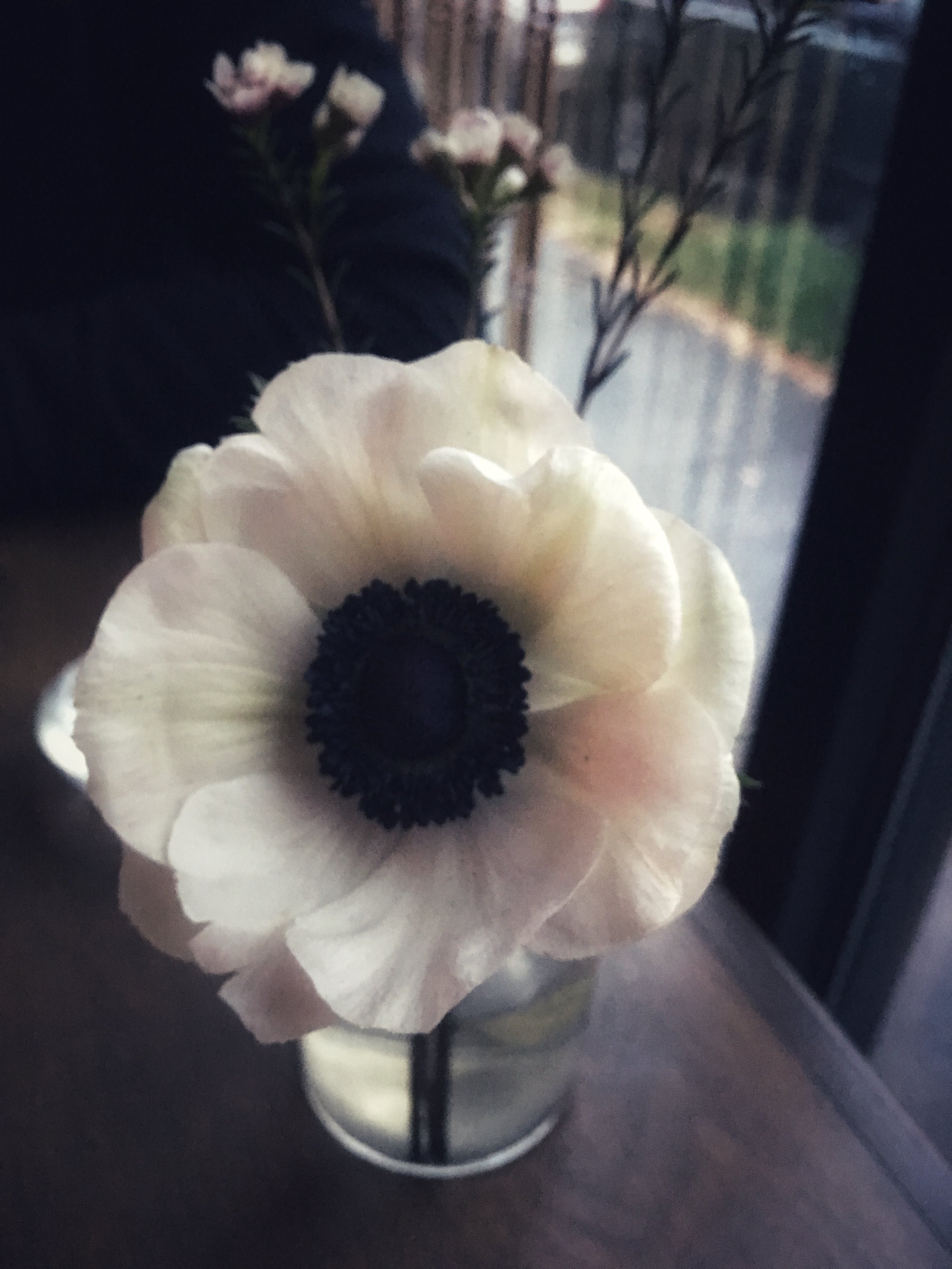Lilith's first-ever book, Frankly Feminist, a curated collection of 40+ short stories from 45+ years of publications is officially out today from Brandeis University Press. This groundbreaking Jewish feminist short story collection, I am honored to say, includes my story “Street of the Deported,” which won first place in Lilith’s 2017 fiction contest. I love how “Street of the Deported” came out soon after my first novel Daughters of the Air came out and how this anthology is now being released the week after my second novel Dreams Under Glass is released: coincidence or something cosmic? Buy Frankly Feminist today from your favorite local bookstore!
My essay "Boiled Boot" appears in the spring issue of The Fiddlehead. The essay explores intergenerational trauma, Charlie Chaplin's film The Gold Rush, the documentary "Werner Herzog Eats His Shoe," and more. Here are the first two pages:
You can order a copy of the issue here. Many thanks to Creative Nonfiction Editor Rowan McCandless and everyone at The Fiddlehead!
I'm honored to have my short story, "Street of the Deported," included in Lilith Magazine's forthcoming anthology, Frankly Feminist (Brandeis University Press, November 2022), collecting 45 years of Jewish feminist fiction published in the magazine. My story won first prize in their 2017 contest and is included in the anthology's section on war. The collection is edited by Susan Weidman Schneider and Yona Zeldis McDonough and includes a forward by Anita Diamant. You can pre-order the book now. You can also add it your Goodreads. I am so looking forward to reading all of the other stories in the anthology!
I'm delighted to share that my short story "Hinges," published in Gordon Square Review last November, was nominated for the Best of the Net. Many thanks to Prose Editor Nardine Taleb for the nomination! You can see the list of nominees here and check out their work here. Hooray!
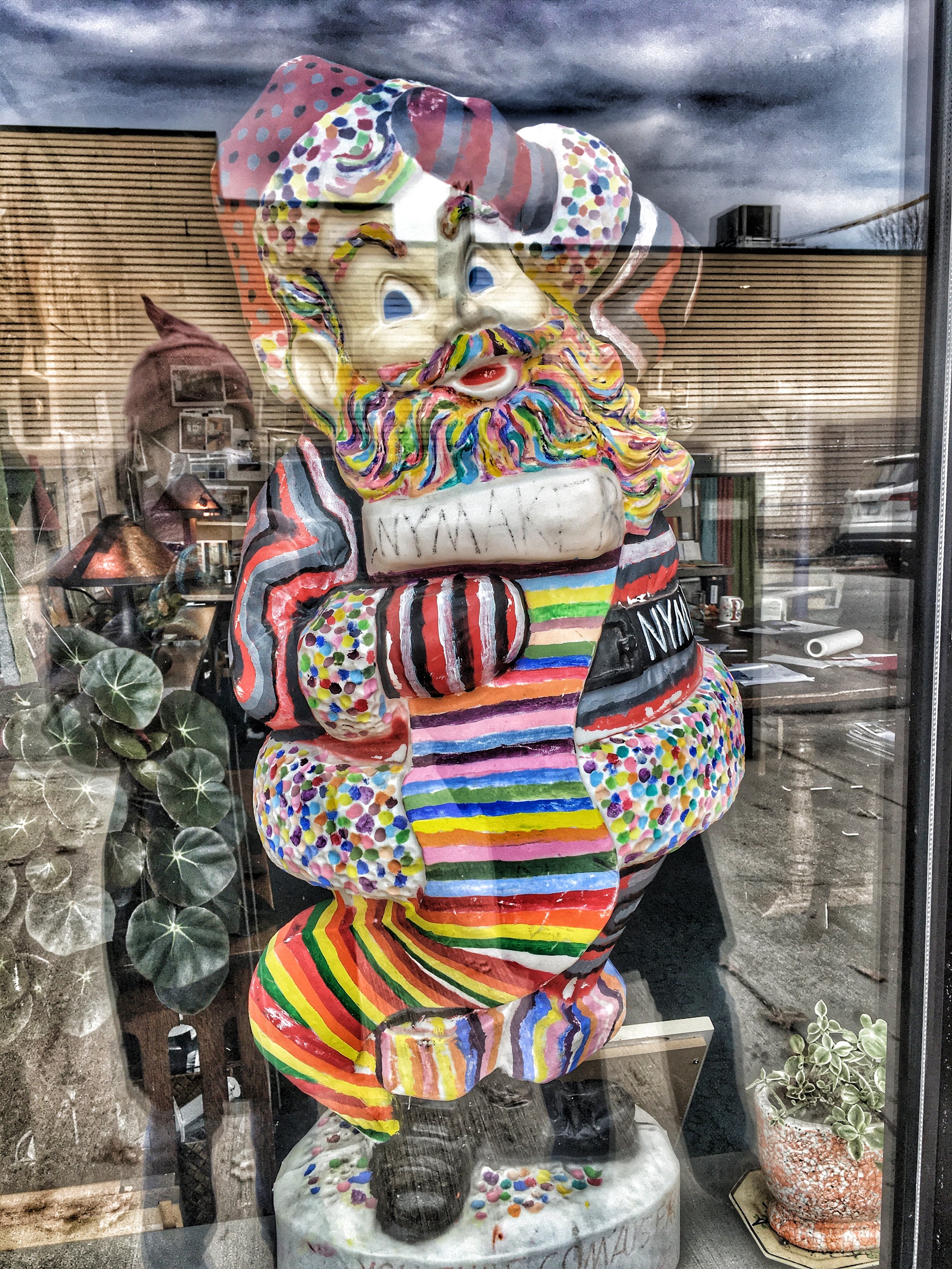
Back in December 2016, I remarked that world affairs were horrendous but that I would take a moment to celebrate some bright spots in my life. I'm not surprised that in the intervening years, I didn't write a similar end-of-year post, and I know we're not quite out of the dark yet, but I'm feeling hopeful for the future, nonetheless. Some reading, writing, and cooking highlights, forthwith!
According to my Goodreads Year in Books, the most popular book I read this year was War and Peace*, which in truth was a partial re-read during Yiyun Li and A Public Space's TolstoyTogether pandemic book club (which continues on as APSTogether). I first read War and Peace the summer between my first and second years at the University of Washington MFA program, as a way to counter my tendency toward sparse detail. It was quite pleasant to return to it this spring, but, alas, my reading life was too over-committed to stay the re-reading course with such a tome. The "least popular" book (for now!) I read won't actually be released until April 2021; please add my college friend Julian Mortimer Smith's wonderful collection The World of Dew and Other Stories to your to-read list!
Speaking of speculative short story collections by people named Julian, my one book review this year was of Julian K. Jarboe's Everyone On the Moon is Essential Personnel. I am sad The Seattle Review of Books went on hiatus, as it has been a wonderfully thoughtful venue for book reviews. My "Dispatch from a Pandemic" in Another Chicago Magazine might be another "highlight" from 2020 except for the whole pandemic part! At least I got to fall in love with the art of Belkis Ayón, profiled in my ACM piece. My last writing highlight of the year is my first short fiction published since 2018 (!), "Hinges" in Gordon Square Review. I had a lovely time at their virtual launch party getting to know a segment of the Cleveland literary community, which I wouldn't have been able to do under normal circumstances. This also gets me to closer to a side-goal I've had for several years, which I picked up from Seattle poet Susan Rich: get published in each of the 50 states. Still have quite a few states to go!
I am currently revising two novels, and between that, the pandemic, and writing 200+ "please vote" letters and postcards before the election, I think I'm going to cut myself some slack on "only" publishing three things this year. I think my biggest accomplishment, however, is learning how to make soup! I've made soup before. But it was always lacking the oomph my grandmother's boasted, even if I knew the secret ingredient in her chicken soup is beef. I've started collecting vegetable scraps in a big tub I keep in the freezer. And, at least once a month this spring and fall (not so much in the summer), I have had a cauldron bubbling, and my, what a comfort that has been.
My winter break plans? Chinese BBQ, baby bok choy, rainbow cookies shipped from Brooklyn (courtesy of my sweet MIL); Robert Altman's film Kansas City via our artsy cinema subscription, Metrograph; and, of course, the necessary trifecta of fiction, nonfiction, and poetry, currently: Anne Tyler's The Accidental Tourist, Isabel Wilkerson's The Warmth of Other Suns, Michele Bombardier's What We Do.
Have a safe, happy, and healthy holiday season!
*NB: Links to books go to my Bookshop.org affiliate page. If you click through and make a purchase, you're simultaneously supporting independent bookstores, other authors, and me, via a small commission. (Want to make sure the commission goes to me? It should say "Anca L. Szilágyi" in the top left corner of the screen.) Thank you!
I'm delighted to have a new short story out today in Gordon Square Review, a journal based in Cleveland that spotlights writers from Northeast Ohio alongside those from around the world. Here's how "Hinges" begins:
"In fact in Vienna I starved a little."
If you'd like to hear me read a snippet of the story, and snippets from the stories, essays, and poems in Issue 7, register here for the virtual launch party happening tomorrow at 7:30 pm EST! (And, if you'd like to hear me read tonight, I'll be discussing the politics of then and now in historic fiction virtually at Greenlight Bookstore with Kris Waldherr, author of The Lost History of Dreams, and Tauno Biltsted, author of The Anatomist's Tale; register here for tonight's event.)
Many thanks to Prose Editor Nardine Taleb, Editor-in-Chief Laura Maylene Walter, Issue 7 Prose Readers Jackie Krogmeier, Alexandra Magearu, and Valli Jo Porter, everyone at Gordon Square Review and Literary Cleveland!
Here is a source of comfort in difficult times: all issues of Fairy Tale Review are free for the foreseeable future. Kate Berheimer wrote on Twitter:
This doesn't put a dent in the painful news today, but maybe it will help some people through the difficult hours. I've always found that being in the company of a good fairy tale helps me do a little bit better, be a little bit kinder. It's why I founded this journal in 2005. xo
I wrote "More Like Home Than Home," the title story of my story collection, as an antidote to the darkness of Daughters of the Air. It was meant to comfort me, and I hope you find comfort in it too. It appeared in the Wizard of Oz-themed Emerald Issue. Now free and online, thanks to Fairy Tale Review , JSTOR, and Wayne State University Press.
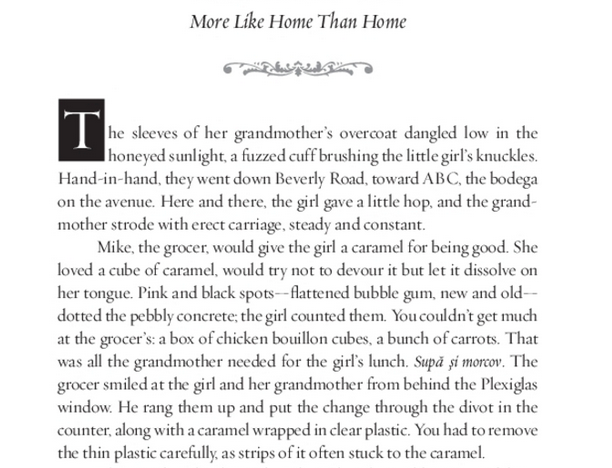
This past weekend was my sixth time attending the AWP conference. My first was in New York in 2008, an overwhelming affair of 8,000 writers crammed into a couple Midtown hotels. That year, I sat on the floor beside a woman from Texas Tech who thought my plan to wait five years before getting an MFA was absurd. The next thing I knew, I was working as a paralegal to save money for graduate school, and by August 2009, I had a full ride to the University of Washington and Michael and I moved cross-country to Seattle. You could say that AWP changed our life pretty radically.
Over the years, we went to a smattering of conferences, but each year I went to fewer and fewer panels, as they tend to repeat and I learned you can only soak up so much information. In 2015 in Minneapolis, I mostly had lunch and dinner with friends, a most pleasant experience, but I'd realized the conference fee had been a waste. Next time, I resolved, I would go to AWP without going to AWP.
Last year in Tampa, with my novel just out, I didn't get to do that. But *this* year, in Portland, it finally happened, and I highly recommend it to folks who've been around the AWP block. I was more relaxed. More hydrated! I had time to stay on top of my online teaching, so less stressed.
Now for some highlights:
Wednesday night, we started at The Old Portland, a wine bar owned by Courtney Taylor-Taylor of the Dandy Warhols. They only serve old French wine; I misheard the description of the Corsican rosé as "foggy" and enjoyed it very much; Michael enjoyed a ten-year-old red Bordeaux. Then, the very Portland-y (more stoner than twee Portlandia) bartender said, "Yeah, we don't like advertise or anything," and showed us the Odditorium, the band's 10,000-foot "clubhouse," where they rehearse, record, film music videos, and the like. It was cavernous and quiet. Michael, a big Dandy Warhols fan, was in heaven.
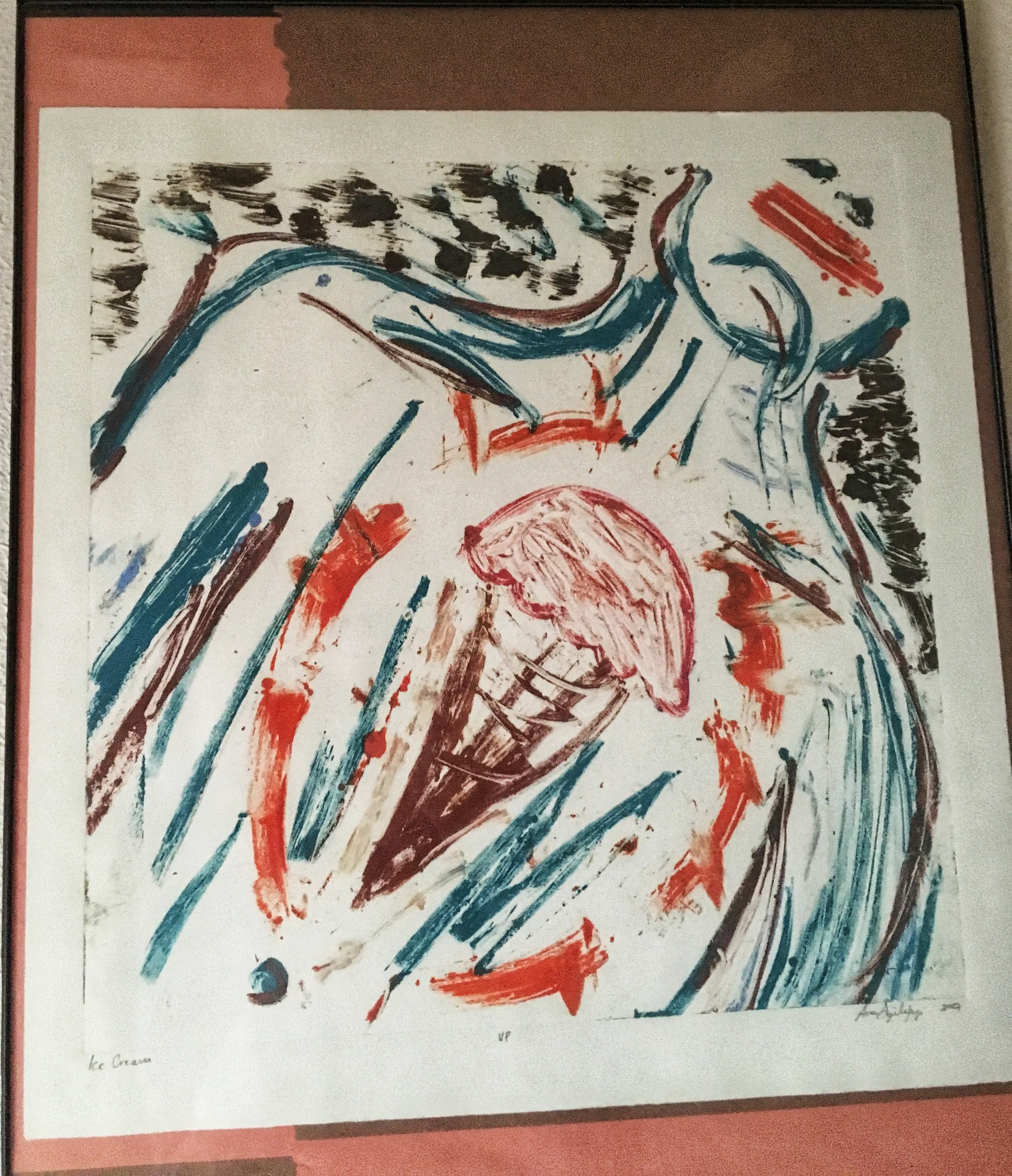
Thursday afternoon, we went to the Vermont Studio Center alumni happy hour. I'd finished a first draft of Daughters of the Air there back in 2007. Three former literary staff read poetry from their recent releases. A line from Nandi Comer's American Family: A Syndrome: "If there is blood, the artist has chosen to omit it." Ryan Walsh spoke of the connection between visual art and writing at VSC (I still cherish learning how to make a mono-print there) and vegetable poems. Zayne Turner read from "Her Radioactive Materials."
Most of the other readings I attended featured numerous readers, so, forthwith, more of a collage:
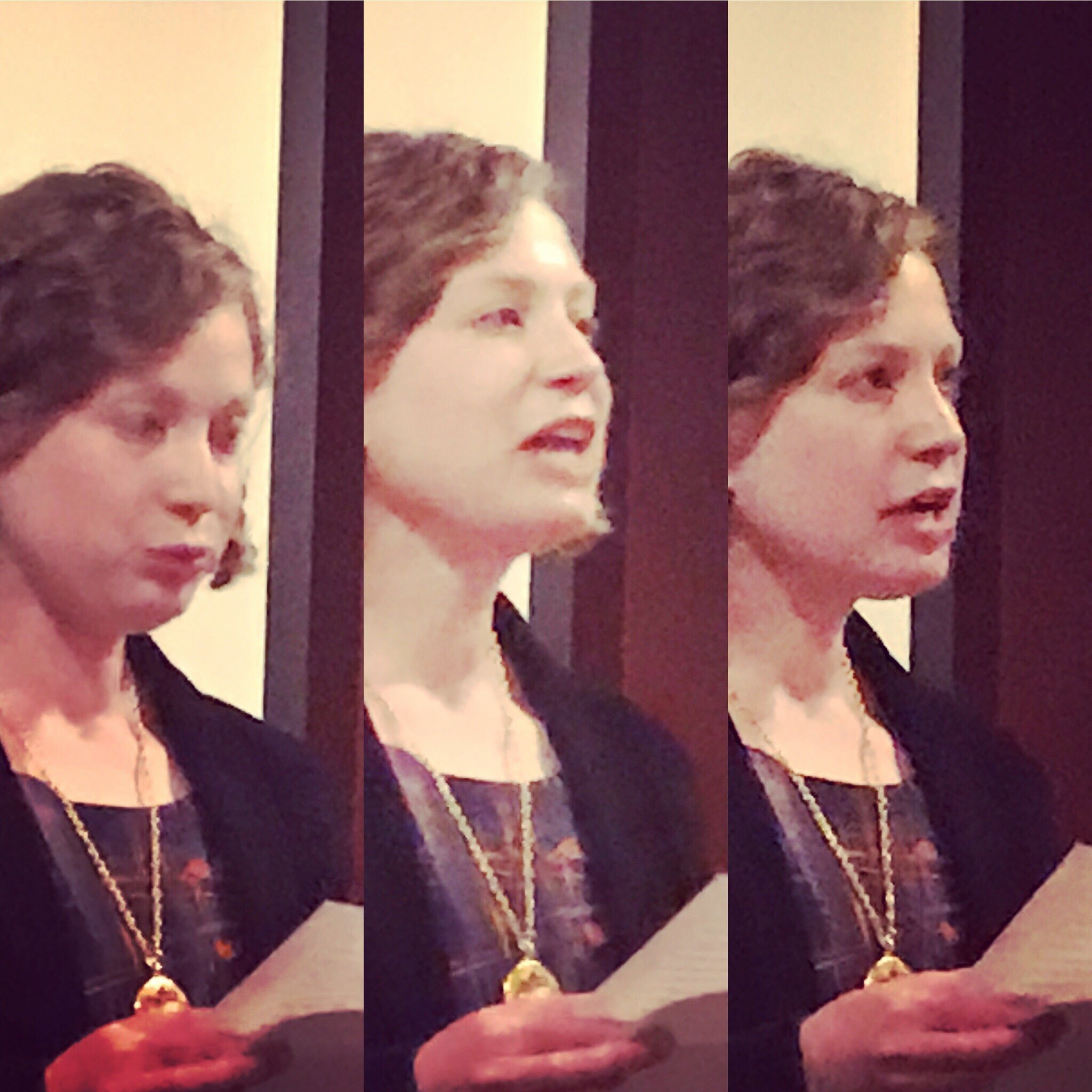
At Strange Theater: A Fabulist Reading, there were spiders and trousseaus and swans roasted in revenge and Japanese monsters and red rooms and porcine men and tyrants and cauliflower-fueled murder. A doll's head was raffled off, among other trinkets; I offered a rare talisman of Cyndi Lauper's trip to Yemen.
Friday, we went to the PageBoy Magazine Happy Hour, featuring 17-word poems and prose. It was a fun afternoon of zingy one-liners and dreamy experimental works and Gertrude Stein jokes. Then we were off to Literary Bingo with Lilla Lit, a new Portland-based reading series; it was fast and furious with four-minute readings (a loud buzzer ushered off writers going over). Chocolate was pelted at every shout of "bingo!"; I caught a peanut-butter ball overhead with my left hand and won a copy of Jennifer Perrine's In the Human Zoo. I also read a poem and someone won a copy of Daughters of the Air. All readings should have strict word and time limits and buzzers and prizes!
Saturday, we paid $5 to get into the convention center book fair. I had a lovely time chatting with Chicago-based folks in advance of our move (yes! big news tucked away over here; more on that in a future post), signing books at the Lanternfish Press table, and seeing fellow LFP authors Charles J. Eskew (Tales of the Astonishing Black Spark) and Andrew Katz (The Vampire Gideon's Suicide Hotline and Halfway House for Orphaned Girls). It was also super cool meeting Carmen Maria Machado, who signed Her Body and Other Parties and Carmilla, an LFP reprint of a lesbian vampire romance that predates Dracula, with a Borgesian introduction and footnotes by Machado.
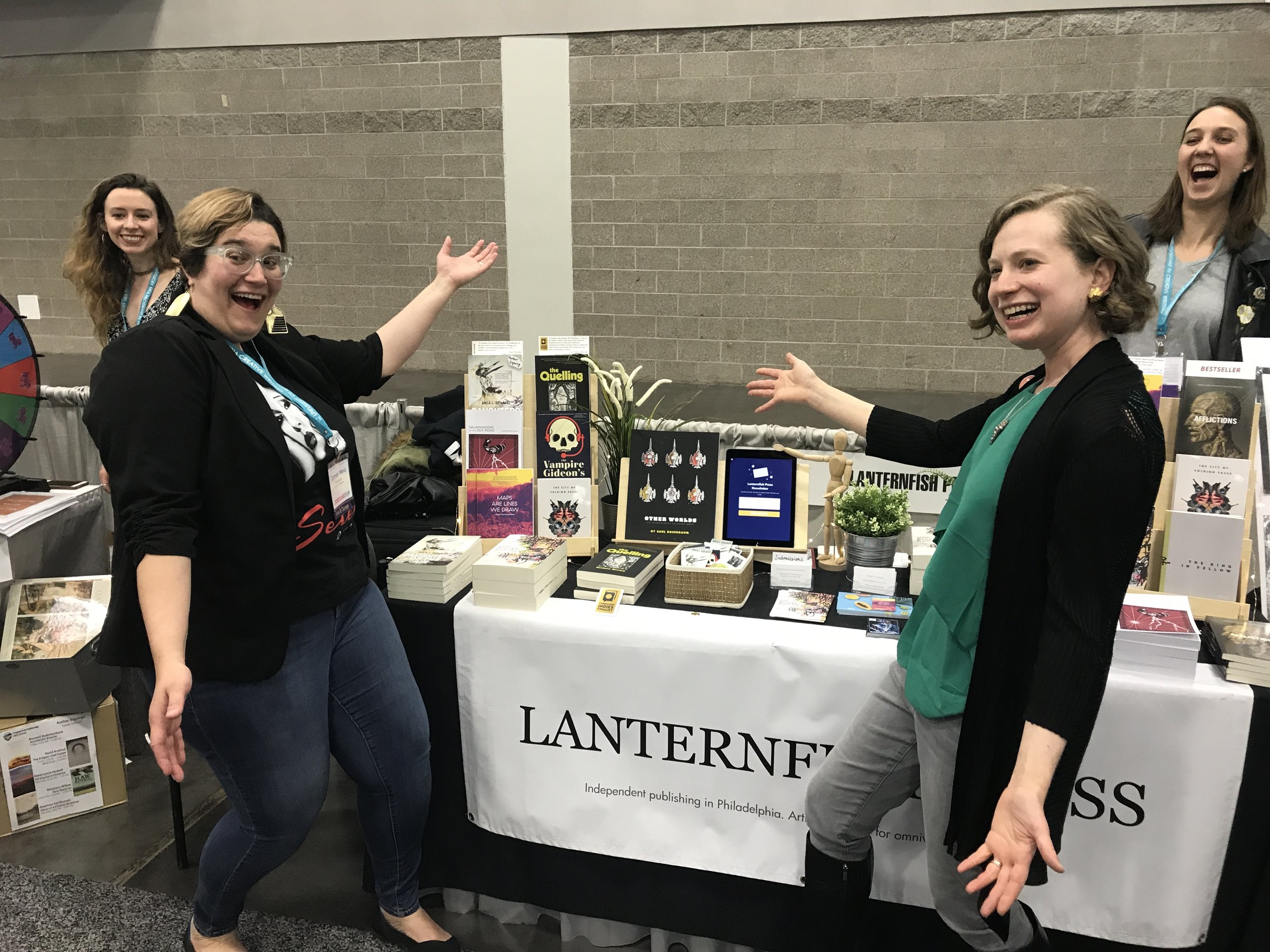
We also picked up a whole slew of poetry in translation (from Romanian and Hebrew), essays on art, novels, short story collections. I can't wait to read it all! Our last stop was the Northwest Micropress Fair at the Ace Hotel, where I signed copies of Sugar, my chapbook from Chin Music Press, and hung out with regional small presses, which felt like a special little send off before we leave the Pacific Northwest.
I heard that the conference had ballooned to 12,000 (15,000?) attendees. Amazing! Perhaps, perhaps, we'll be in San Antonio next year, and if not San Antonio, Kansas City, and if not Kansas City, Philadelphia...?
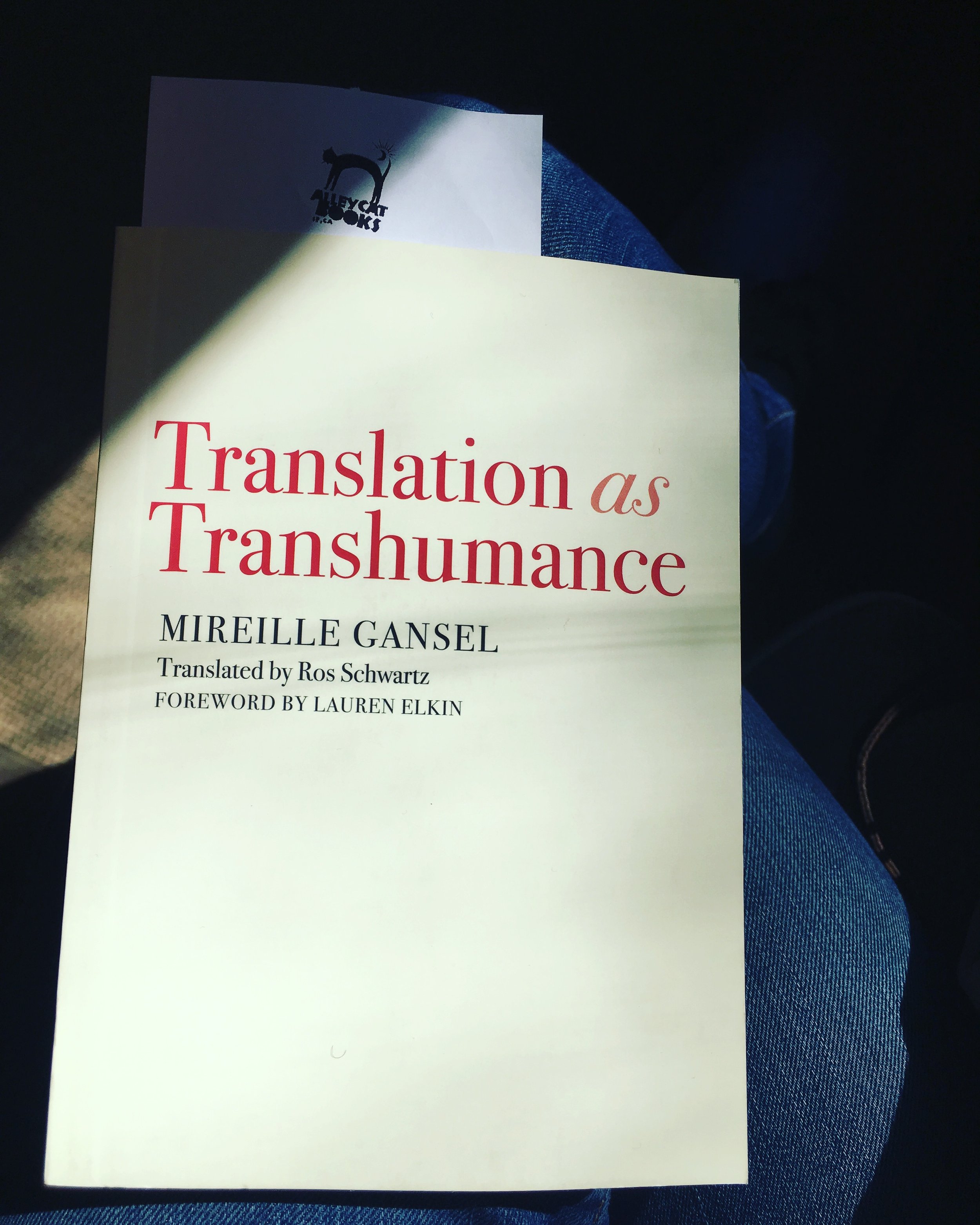
Disclosure: I am an affiliate of Bookshop.org and I will earn a commission if you click through and make a purchase.
On WA-20 west toward the Anacortes Ferry Terminal, Michael and I found a Spanish radio broadcast with news relayed at a curiously slow pace, so that even we, with our limited Spanish, could understand. It was a multicultural station based in Vancouver. We got news of sex trafficking in Buenos Aires, corruption in Brazil, and an interview about traditional foods in a certain town in Mexico whose name eluded me: horchata tamarindo, pavo, taquitos fritos, plus socializing at church. There was mariachi music, then a pan flute.
In the next hour, the language switched to something I couldn't recognize. Something Scandinavian? South Asian? I had no clue. But then bhangra music came on, so maybe it was Punjabi?
At the ferry checkpoint (we were on our way to Victoria, British Columbia), I lowered the radio, as if customs would find foreign sounds questionable. Once we were on the boat, I switched my phone to airplane mode and concentrated on Mirielle Gansel's Translation as Transhumance (trans. Ros Schwartz), which Michael found at Alley Cat Books in San Francisco, when I was there on book tour in April.
It seemed appropriate to read a memoir and philosophical treatise on the act of translation while crossing into Canadian waters. Gansel's family survived the Holocaust; she grew up in France and remembers the special occasions when a letter would arrive from Budapest and her father would solemnly translate it aloud. Some of her memories remind me of visiting Freiburg, Germany with my grandmother, who spoke a mishmash of Romanian and Hungarian with her cousin and uncle (they saved Hungarian for dirty jokes), and where the cousin's husband spoke German and their children spoke English to me. Here is the lovely excerpt which prompted my reverie:
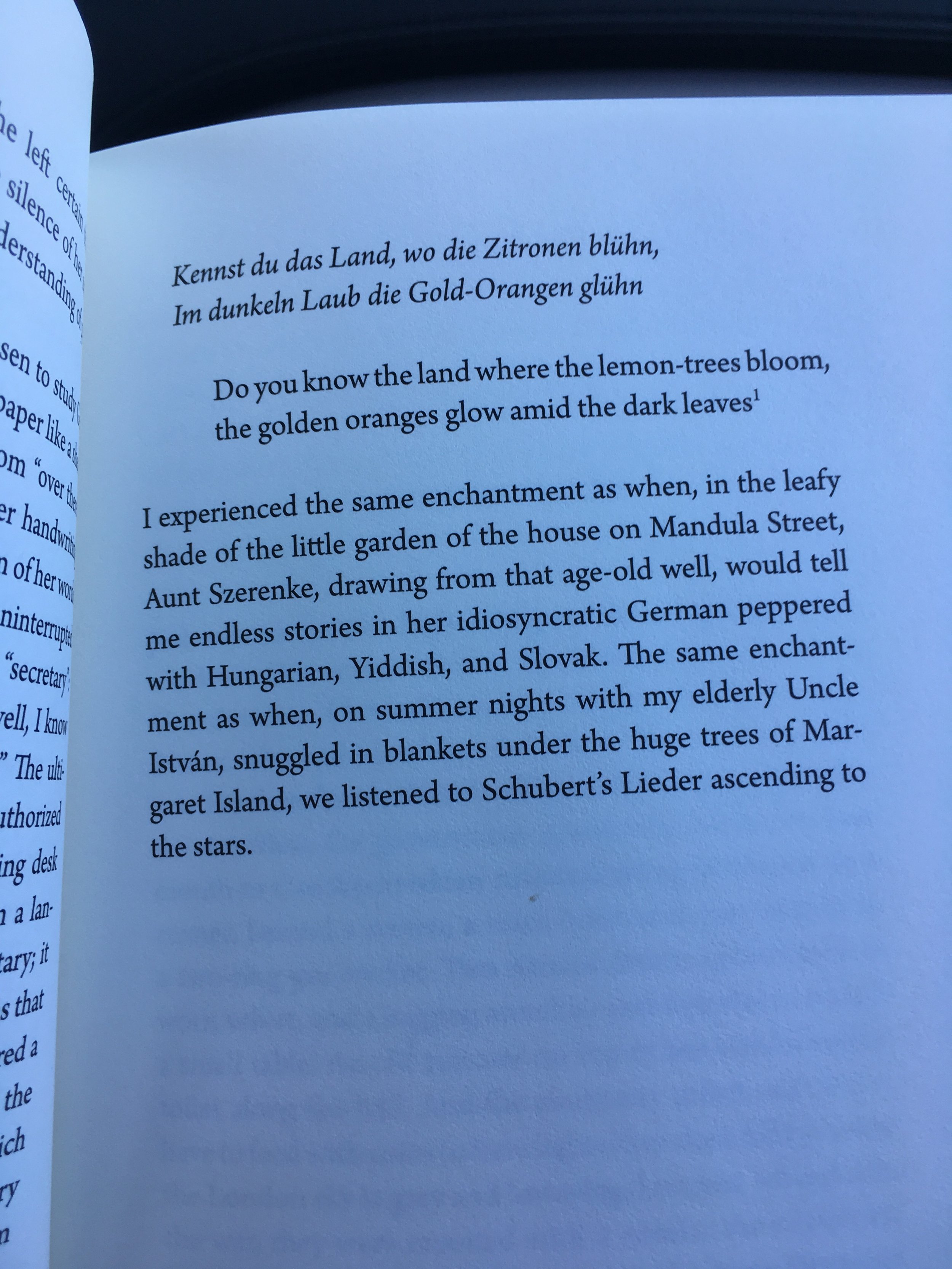
In the 1960s and '70s, Gansel went on to translate poets from East Berlin and Vietnam. Something she touches upon which I would like to research further is the "de-Nazification" of German and the attempt to translate Vietnamese poetry without exoticization. She mentions Bertolt Brecht de-Nazified Hölderlin's translation of Antigone without comparing examples. But she does offer this translation of poet To Huu (translated into English, in turn, by Ros Schwartz--oh, the layers!):
Casuarina forests,
Groves of green coconuts,
The shimmering of the white dunes
where the sun trembles,
garden of watermelons with red honey!
Gansel quotes Nguyen Khac Vien, who invited her work to on an anthology of Vietnamese poetry in translation: "Exoticism arouses simply a sense of foreignness, without being able to communicate the emotions, the deeper feelings that inspire a work."
On that notion of digging for deeper feelings, Gansel shares her approach to translating the entire oevre of Nelly Sachs, a Jewish German-language poet who lived in exile in Sweden. She ended up rewriting the work four times, using the Bible's four levels of meaning, according to the Jewish tradition of exegesis: Peshat (literal meaning), Remez (allusive meaning), Drush (deeper meaning), and Sod (secret, esoteric meaning).
I could go on and on and on about how much I love this slender volume about exile and empathy. This book has opened so many doors for me.
I'm excited to have a new short story, "Sneaking Into Dr. Zhivago," in the spring issue of Confrontation. It's an honor to be in a journal that's published the likes of Cynthia Ozick and Joseph Brodsky! Here's how the story begins:
If not Paris, Vienna. That's where I should have landed. My father sent my brother to medical school in Vienna, and I, I was being groomed for the Sorbonne. I would have studied history. And literature. Between the wars, many of my cousins moved to Vienna, London, New York. Children of my seven uncles.
 Every summer, I am simultaneously excited for and stressed out by the Seattle Public Library and Seattle Arts & Lectures Adult Book Bingo program and Women in Translation Month, which happens in August. These are supposed to be fun efforts to read a lot, and they are fun, and yet I develop anxieties about time. (Ah, time. I am forever losing to time.) In any case, the 2018 book bingo card was recently released, and I eagerly printed out a copy and penciled in my aspirations for the season.So, what are some books on my docket? My ideal reading diet consists of reading fiction, poetry, and nonfiction simultaneously, and my current reading manages three bingo squares:
Every summer, I am simultaneously excited for and stressed out by the Seattle Public Library and Seattle Arts & Lectures Adult Book Bingo program and Women in Translation Month, which happens in August. These are supposed to be fun efforts to read a lot, and they are fun, and yet I develop anxieties about time. (Ah, time. I am forever losing to time.) In any case, the 2018 book bingo card was recently released, and I eagerly printed out a copy and penciled in my aspirations for the season.So, what are some books on my docket? My ideal reading diet consists of reading fiction, poetry, and nonfiction simultaneously, and my current reading manages three bingo squares:
- Takes Place in the Area You Were Born: 10:04 by Ben Lerner. Lerner will give a talk at Hugo House on August 9, on the novel as a curatorial form. Intriguing!
- Poetry or Essays (why, why aren't these separate boxes?): To Repel Ghosts by Kevin Young, a book of poetry inspired by Jean-Michel Basquiat, which I picked up at the Brooklyn Museum while on book tour.
- Finish a Book You Started and Put Down: The Omnivore's Dilemma by Michael Pollan. The second section of this book, on processed food, was dry and slow, and I almost gave up on it. But I am super interested in the section on the rise of organic farming and look forward to the final section on foraging food, the reason I picked up the book in the first place. As I slowly work on a series of lyric essays about food and culture, I am finding Pollan's research and writing mostly delightful and always informative.
Of course, none of these books are by women, nor are they in translation. So, here's what's next for me:
- Written by An Author From Another Country: Brother in Ice by Alicia Kopf
- Award-Winning Author: The Appointment by Herta Müller
- Fiction: The Hottest Dishes of Tatar Cuisine by Alina Bronsky
I also participated in the Seattle Public Library's Your Next Five Books program, asking for smart, zippy books by women, ideally in translation. I'll let you know what they recommend! (In the meantime, if you are looking for recommendations from me, here are my previous posts on women in translation.) What are you reading this summer?UPDATE (5/30/18): Here are the five "smart, zippy books by women" that the Seattle Public Library recommended. I am particularly excited about Umami by Lala Jufresa! From the title, to the author's name, to the promise of a precocious 12-year-old girl protagonist (a soft spot for me), this book will for sure go on my Recommended by a Librarian bingo square.
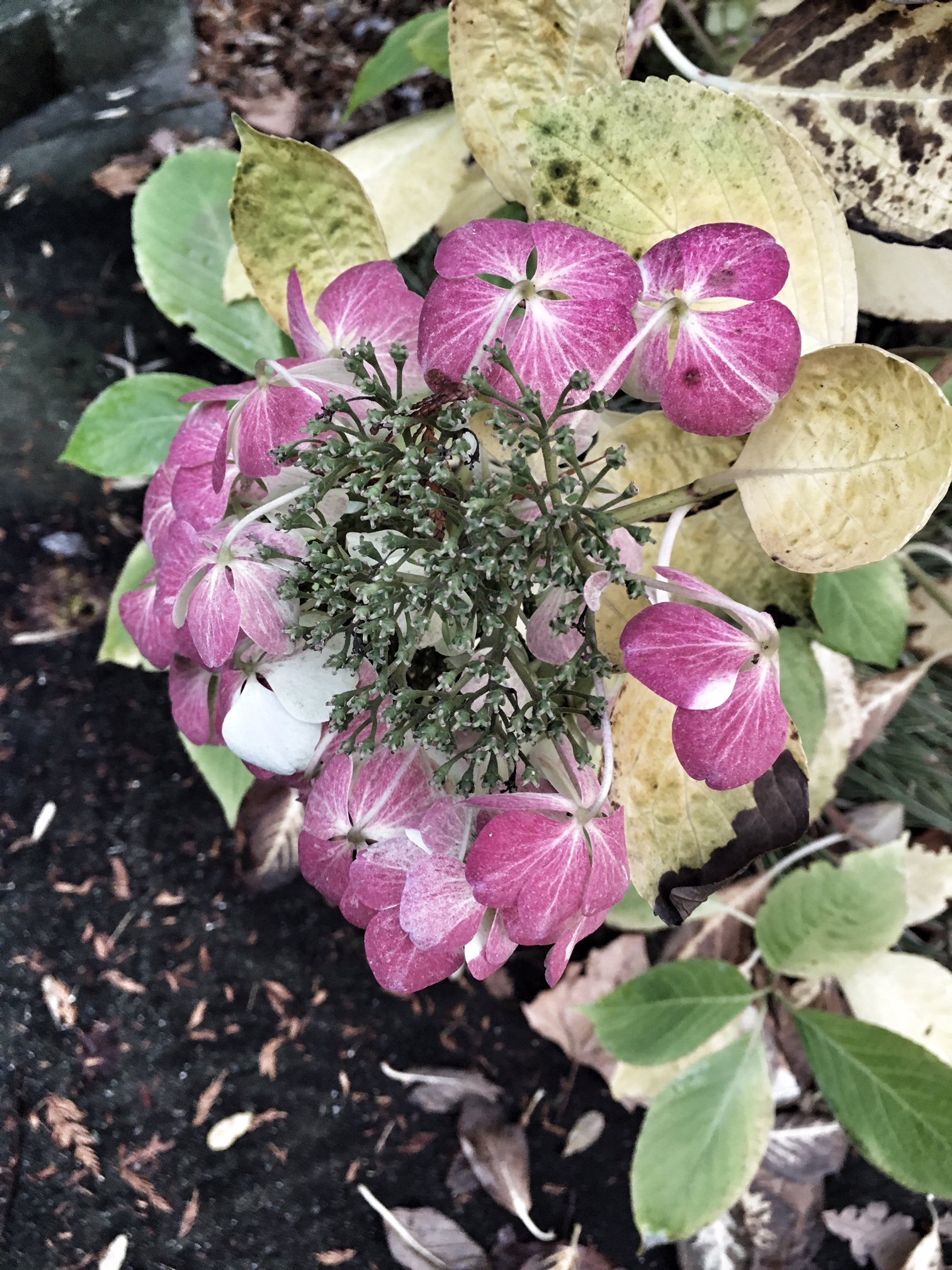 I'm excited to share that my story "Street of the Deported," part of my in-progress story collection More Like Home Than Home, won first place in Lilith Magazine's fiction contest. You can read the story right here, or pick up a copy from your local newsstand. Over on their blog, I spoke with fiction editor Yona Zeldis McDonough about the story, Daughters of the Air, fairy tales, and food. You can read that Q & A here. Hooray!
I'm excited to share that my story "Street of the Deported," part of my in-progress story collection More Like Home Than Home, won first place in Lilith Magazine's fiction contest. You can read the story right here, or pick up a copy from your local newsstand. Over on their blog, I spoke with fiction editor Yona Zeldis McDonough about the story, Daughters of the Air, fairy tales, and food. You can read that Q & A here. Hooray!
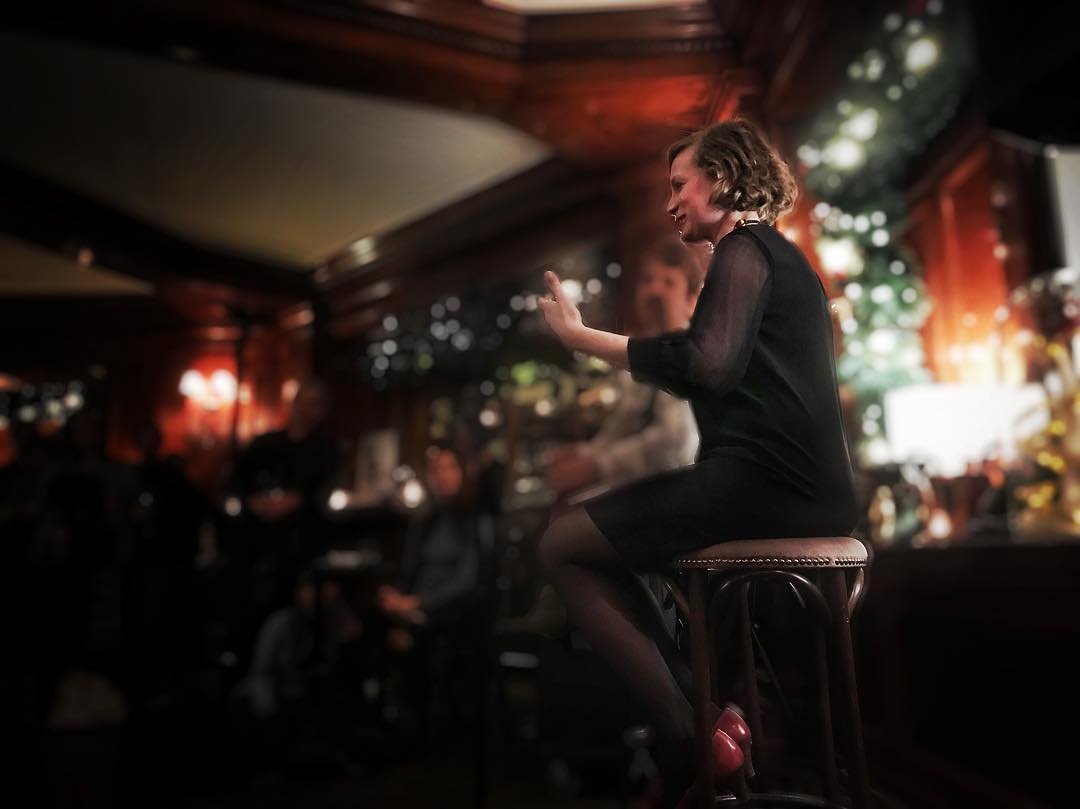 The Daughters of the Air launch party Tuesday night was a dream. The Fireside Lounge at the Hotel Sorrento was all decked out for the holidays: twinkly lights, garlands, and the lounge's quintessential warm glow. I was astounded at the turn out—and relieved we splurged on 100 alfajores! The books sold out within half an hour. Then Hugo House hurried over with more books. Then those sold out. Then Michael hurried to the car to get a box of my own books. Then we hauled out the second box.Christine Neulieb, Editorial Director of Lanternfish Press, opened the night with a few words about publishing Daughters of the Air. My dear friend and Furnace co-founder Corinne Manning read a beautiful excerpt from her novel Potential Monsters. And, we talked about metamorphosis, the pungent air by the Gowanus Canal, the inverted landscape of fairy tales. You can see more photos from the party here.Saturday night, Salon published by essay "Writing a Holocaust novel without writing about the Holocaust." in which I discuss exploring the Holocaust obliquely in Daughters of the Air. Last week, I spoke about this theme in an interview with Erin Popelka over at Must Read Fiction, along with how reading poetry and teaching ESL informed my creative writing. (If you retweet the interview or like it and follow Must Read on Instagram, you'll be entered into a giveaway for a copy of my novel.)Finally, I have a new short story, "Healers," in Geometry, a new magazine based in New Zealand. The .pdf is available for free, but you can buy a beautiful print copy for $15 and support a literary magazine that pays writers.What a week! All the excitement has given me a cold, but I love an excuse to flood myself with big bowls of noodle soup.
The Daughters of the Air launch party Tuesday night was a dream. The Fireside Lounge at the Hotel Sorrento was all decked out for the holidays: twinkly lights, garlands, and the lounge's quintessential warm glow. I was astounded at the turn out—and relieved we splurged on 100 alfajores! The books sold out within half an hour. Then Hugo House hurried over with more books. Then those sold out. Then Michael hurried to the car to get a box of my own books. Then we hauled out the second box.Christine Neulieb, Editorial Director of Lanternfish Press, opened the night with a few words about publishing Daughters of the Air. My dear friend and Furnace co-founder Corinne Manning read a beautiful excerpt from her novel Potential Monsters. And, we talked about metamorphosis, the pungent air by the Gowanus Canal, the inverted landscape of fairy tales. You can see more photos from the party here.Saturday night, Salon published by essay "Writing a Holocaust novel without writing about the Holocaust." in which I discuss exploring the Holocaust obliquely in Daughters of the Air. Last week, I spoke about this theme in an interview with Erin Popelka over at Must Read Fiction, along with how reading poetry and teaching ESL informed my creative writing. (If you retweet the interview or like it and follow Must Read on Instagram, you'll be entered into a giveaway for a copy of my novel.)Finally, I have a new short story, "Healers," in Geometry, a new magazine based in New Zealand. The .pdf is available for free, but you can buy a beautiful print copy for $15 and support a literary magazine that pays writers.What a week! All the excitement has given me a cold, but I love an excuse to flood myself with big bowls of noodle soup.
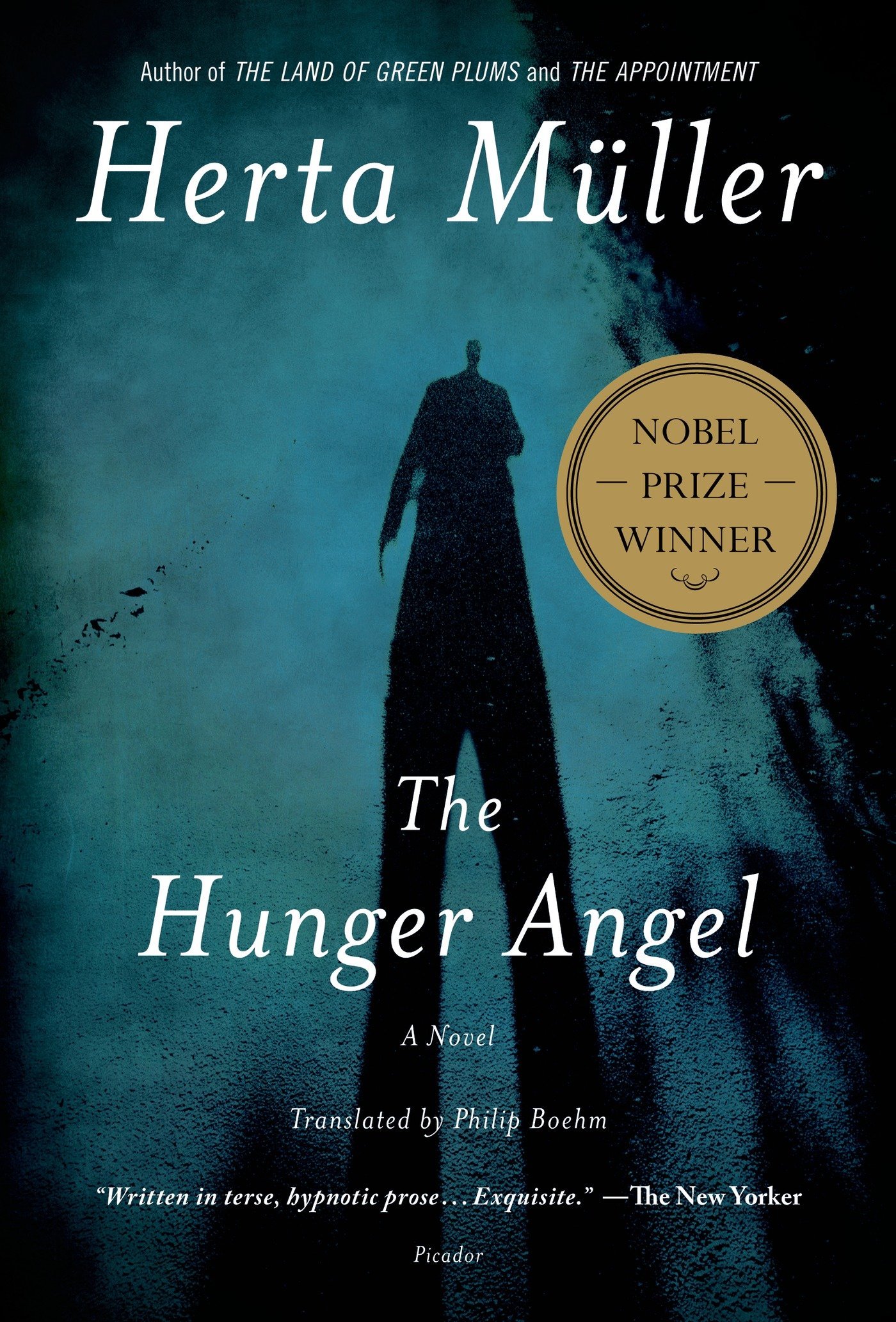 After I read The Land of Green Plums a few years ago, Herta Müller joined a short list of authors whose work I want to read all of. I am not the sort of reader who methodically works through an oeuvre; I crave different voices. But this list includes Virginia Woolf, Toni Morrison, and Mavis Gallant. (It used to include Angela Carter; I adore her short fiction, but actually found trying to read her novels like trying to eat an entire chocolate mousse cake.) Müller's fiction is poetic and harrowing and sheds light on the country my family comes from. For me, she is a must.For my third installment of Women In Translation Month, I tackled The Hunger Angel. This novel tells the story of Leo Auberg, a young German man in Romania deported to a labor camp in Russia in January 1945. I was surprised to learn that this happened: all Germans living in Romania and from the ages of 17-45 were forced to "rebuild" the Soviet Union. Indeed, as Müller explains in her Afterword, this was something shameful that Germans in Romania only discussed among themselves, if they discussed it at all. (Müller emigrated to West Germany after being persecuted by Ceausescu's secret police.)The Hunger Angel meditates on objects. Life in a gulag is tedious, so in lieu of a tight narrative arc, the first two-thirds of the book move laterally from things like cement and coal to yellow sand and firs. There's a weirdly loving chapter about a kind of shovel known as "the heart-shovel," which, by virtue of its design, allows Leo to forget himself as he works in ways that other tools or tasks don't.And, of course, as the title implies, there's a food problem. With just one piece of bread a day and two bowls of cabbage soup, and no mid-day meal, the hunger angel emerges an antagonist who skews how prisoners perceive their world and how they behave. But memories of food from childhood buoy Leo and his prison-mates. One day, every summer, his mother would take him to the Café Martini where he could gorge himself on sweets:
After I read The Land of Green Plums a few years ago, Herta Müller joined a short list of authors whose work I want to read all of. I am not the sort of reader who methodically works through an oeuvre; I crave different voices. But this list includes Virginia Woolf, Toni Morrison, and Mavis Gallant. (It used to include Angela Carter; I adore her short fiction, but actually found trying to read her novels like trying to eat an entire chocolate mousse cake.) Müller's fiction is poetic and harrowing and sheds light on the country my family comes from. For me, she is a must.For my third installment of Women In Translation Month, I tackled The Hunger Angel. This novel tells the story of Leo Auberg, a young German man in Romania deported to a labor camp in Russia in January 1945. I was surprised to learn that this happened: all Germans living in Romania and from the ages of 17-45 were forced to "rebuild" the Soviet Union. Indeed, as Müller explains in her Afterword, this was something shameful that Germans in Romania only discussed among themselves, if they discussed it at all. (Müller emigrated to West Germany after being persecuted by Ceausescu's secret police.)The Hunger Angel meditates on objects. Life in a gulag is tedious, so in lieu of a tight narrative arc, the first two-thirds of the book move laterally from things like cement and coal to yellow sand and firs. There's a weirdly loving chapter about a kind of shovel known as "the heart-shovel," which, by virtue of its design, allows Leo to forget himself as he works in ways that other tools or tasks don't.And, of course, as the title implies, there's a food problem. With just one piece of bread a day and two bowls of cabbage soup, and no mid-day meal, the hunger angel emerges an antagonist who skews how prisoners perceive their world and how they behave. But memories of food from childhood buoy Leo and his prison-mates. One day, every summer, his mother would take him to the Café Martini where he could gorge himself on sweets:
We could choose among marizpan truffles, chocolate cake, savarins, cream cake, nutcake roll, Ischler tartlet, cream puffs, hazelnut crisps, rum cake, napoleons, nougat, and doboschtorte. And ice cream--strawberry ice cream in a silver dish or vanilla ice cream in a glass dish or chocolate ice cream in a porcelain bowl, always with whipped cream. And finally, if we were still able, sour-cherry cake with jelly.
As if being in a gulag is not challenging enough, Leo is in the closet. When men and women dance on Saturday nights (who knew they had dances, albeit sad dances, in gulags?), he remains off to the side. Men and women couple in the barracks; he does not. Though he observes: "Half-starved humans are really neither masculine nor feminine but genderless, like objects." Over the course of the novel, this meditation on objects also becomes a larger meditation on loneliness and longing and trying to stay alive.Leo has a poet's eye, and it is that vision, that attention to language, which makes reading this essential book bearable.
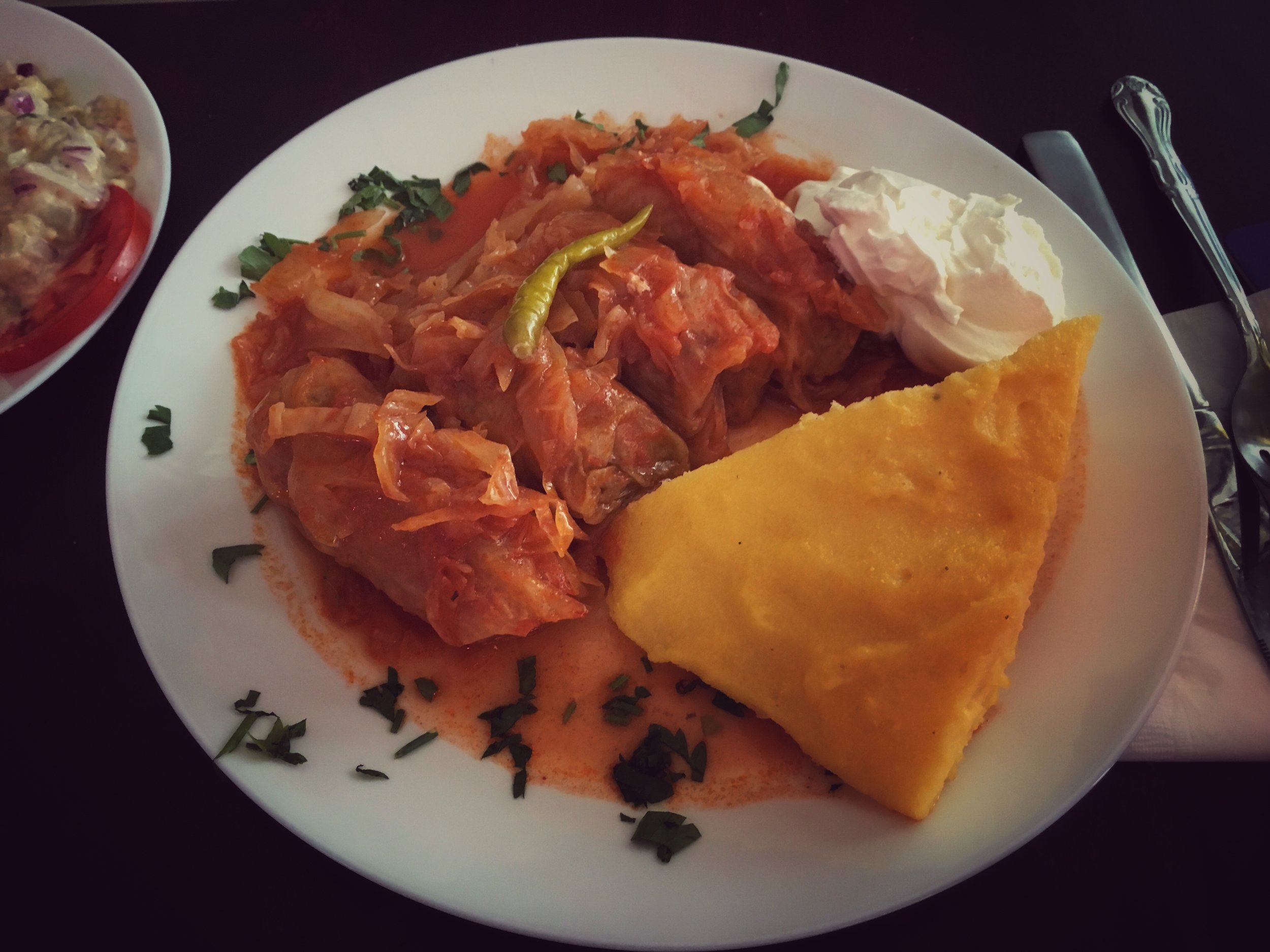 My third piece for The Stranger takes me to Belltown's Sarajevo Lounge, Bitter Lake's European Foods, and Renton's Sunset Bistro in search of Romanian food. It's just a four-hour walk to Renton along Lake Washington, so one of these Saturdays I'm going to lace up my sneakers and return to Sunset Bistro ready to feast. You can read the article here.
My third piece for The Stranger takes me to Belltown's Sarajevo Lounge, Bitter Lake's European Foods, and Renton's Sunset Bistro in search of Romanian food. It's just a four-hour walk to Renton along Lake Washington, so one of these Saturdays I'm going to lace up my sneakers and return to Sunset Bistro ready to feast. You can read the article here.
 My second piece for The Stranger is an essay on how I came around on Spam--the edible variety, not the annoying junk mail. I discuss, among other things, dishes from Cheeky Cafe, Super Six, and Kauai Family Restaurant. I understand Kauai Family Restaurant's cakes cause people to weep: I will most certainly return at some point, hopefully soon, after I've eaten a decent amount of kale. You can read the article here.This is my third essay drawing on a single two-week family trip to Romania in 1995. The first was "Used to be Schwartz" in The Rumpus, which (not incidentally?) also touches on a troubled relationship with ham. (But hey--to quote my great-grandmother, "If it tastes good, it's kosher.") The second was "Dark Fruit: A Cultural and Personal History of the Plum" in The Los Angeles Review of Books. I'd love to go back to Romania sometime, not just to see how the country has changed (and of course to see family and family friends), but to see how my perceptions of the place have changed and to explore stories I couldn't have possible looked for as a 12-year-old. Ah, someday!
My second piece for The Stranger is an essay on how I came around on Spam--the edible variety, not the annoying junk mail. I discuss, among other things, dishes from Cheeky Cafe, Super Six, and Kauai Family Restaurant. I understand Kauai Family Restaurant's cakes cause people to weep: I will most certainly return at some point, hopefully soon, after I've eaten a decent amount of kale. You can read the article here.This is my third essay drawing on a single two-week family trip to Romania in 1995. The first was "Used to be Schwartz" in The Rumpus, which (not incidentally?) also touches on a troubled relationship with ham. (But hey--to quote my great-grandmother, "If it tastes good, it's kosher.") The second was "Dark Fruit: A Cultural and Personal History of the Plum" in The Los Angeles Review of Books. I'd love to go back to Romania sometime, not just to see how the country has changed (and of course to see family and family friends), but to see how my perceptions of the place have changed and to explore stories I couldn't have possible looked for as a 12-year-old. Ah, someday!
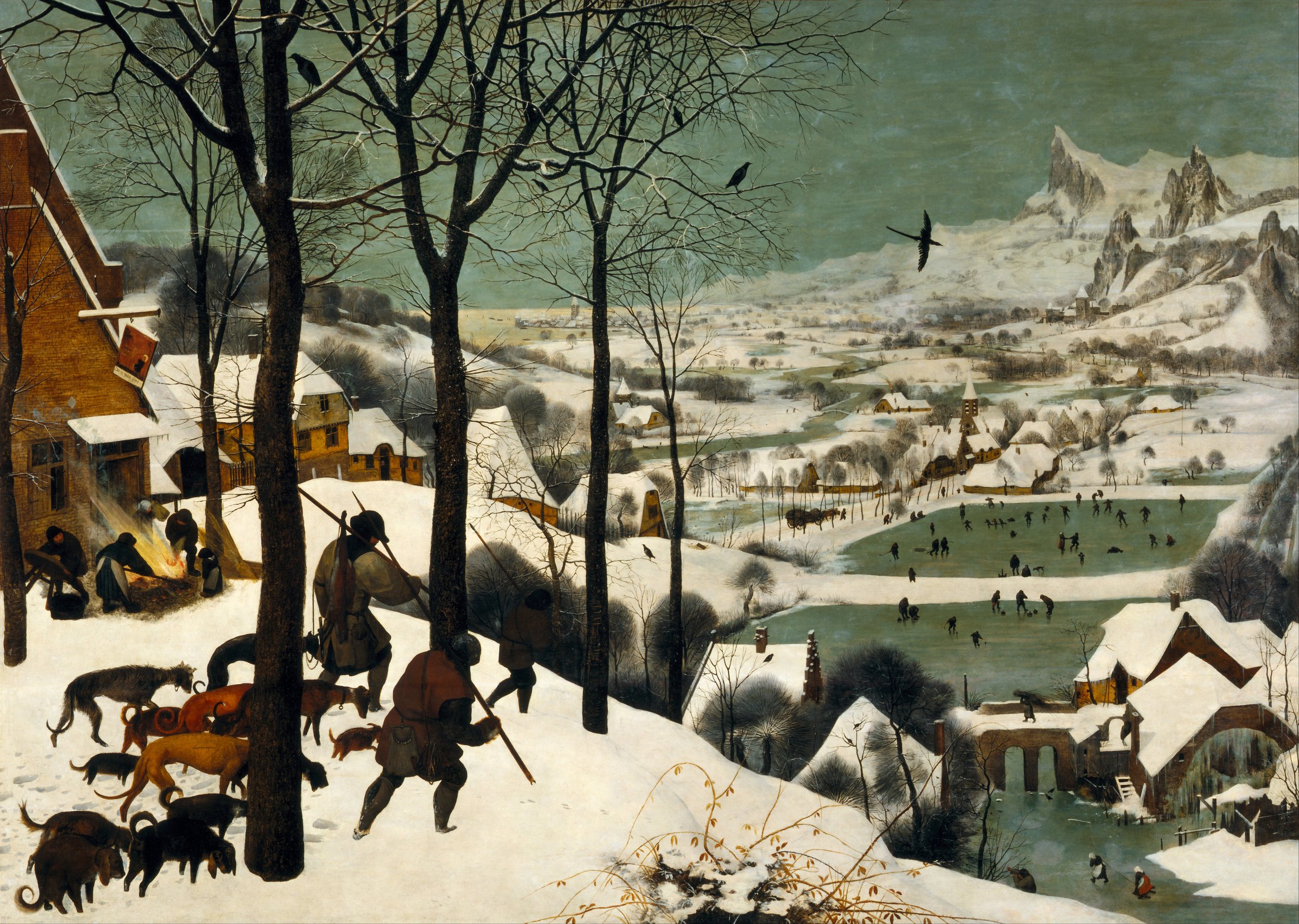 Pieter Bruegel the Elder - Hunters in the Snow (Winter) - 1565
Pieter Bruegel the Elder - Hunters in the Snow (Winter) - 1565
This winter, I'm teaching Writing About Place at Hugo House. In this six-week class, we'll read stories by Flannery O'Connor, Louise Erdrich, and Ursula LeGuin, among other illustrious authors. We'll write about places we know, places we don't know, and places that exist only in our imaginations. And, we'll talk about memory, research, and world building. Class meets Wednesdays 5-7 pm from 2/22-3/29. Hugo House is located in First Hill, an easy-peasy trip from downtown and right next to the always-free Frye Art Museum. Speaking of place, if you've not been to the Hugo House's temporary home, you're in for treat, with a light-filled atrium and mysterious winding hallways. Registration is now open. The scholarship deadline is 12/16 and there's an early bird discount until 12/19! Hope to see you there.
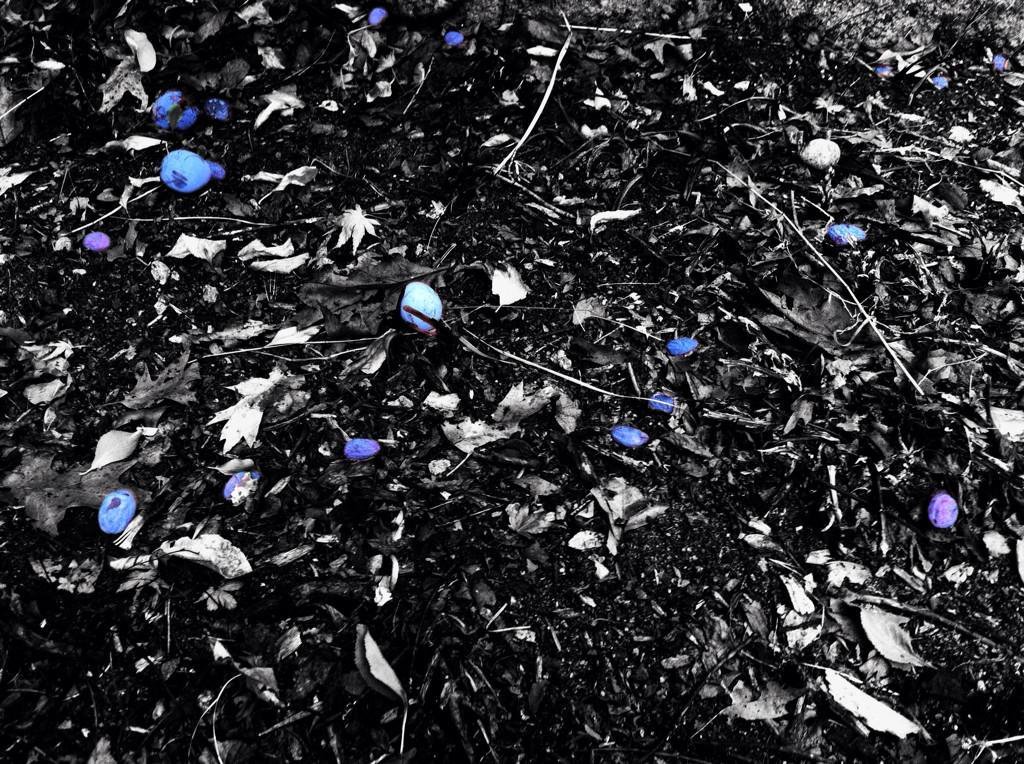 I'm thrilled to have my essay "Dark Fruit: A Cultural and Personal History of the Plum" appear in the Los Angeles Review of Books today. It collages personal stories with discussions of Tolstoy, Herta Müller, Gregor von Rezzori, ancient Chinese poetry, visual art, horticulture, superstitions, and more. I'm grateful it found a home in such a fine venue!
I'm thrilled to have my essay "Dark Fruit: A Cultural and Personal History of the Plum" appear in the Los Angeles Review of Books today. It collages personal stories with discussions of Tolstoy, Herta Müller, Gregor von Rezzori, ancient Chinese poetry, visual art, horticulture, superstitions, and more. I'm grateful it found a home in such a fine venue!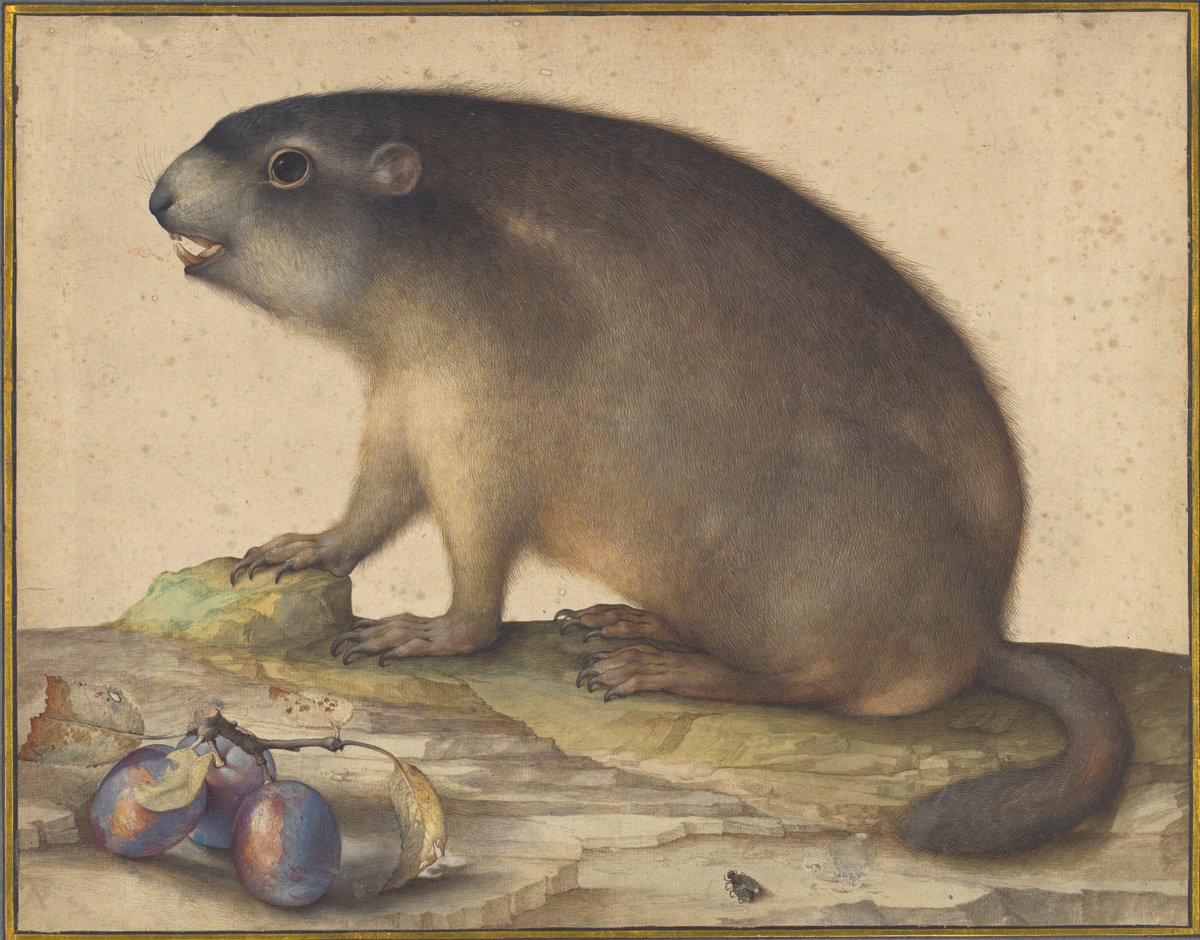
I wrangled some complicated family history into "Threads of Memory," a short personal essay for the February/March issue of Jewish in Seattle. The opportunity to write about my family's immigration story and relationship with Judaism brought up a lot more material than a single piece can contain, so stay tuned for more!Here's how the piece begins:
Family lore says my great-grandmother Margaret — we called her Mami — survived the Holocaust by hiding under a pile of bodies. She was not known for her pleasant demeanor but for her steeliness. continue reading
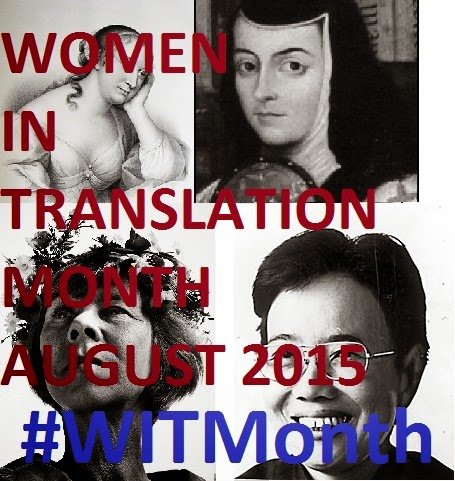 August is Women in Translation Month (WITMonth), designed to encourage readers, reviewers, publishers, and translators to explore more books in translation by women. If you've been following the VIDA count, then the grim statistics around women in translation (gathered diligently by Meytal Radzinski) is, unfortunately, not a surprise: women writers comprise only about 30% of books translated into English. As I'm passionate about cultivating a diverse literary ecosystem, this is a project near and dear to my heart. And though I'm happy WITMonth is an annual event, I'm getting started right now. Because there are SO MANY good books and I'm sure there are SO MANY MORE out there waiting to be picked up by a publisher and gobbled by readers.I immediately pulled all the books from my shelves that fit the bill. I made a read pile and a to-be-read pile. Of the read pile, I'd like to make some recommendations, for those of you who'd like to join me in WITMonth. Read these books! And I'll be diving into the to-be-read pile and writing about the gems in that pile in August. Read those books too! Let's talk about 'em!Recommended Books
August is Women in Translation Month (WITMonth), designed to encourage readers, reviewers, publishers, and translators to explore more books in translation by women. If you've been following the VIDA count, then the grim statistics around women in translation (gathered diligently by Meytal Radzinski) is, unfortunately, not a surprise: women writers comprise only about 30% of books translated into English. As I'm passionate about cultivating a diverse literary ecosystem, this is a project near and dear to my heart. And though I'm happy WITMonth is an annual event, I'm getting started right now. Because there are SO MANY good books and I'm sure there are SO MANY MORE out there waiting to be picked up by a publisher and gobbled by readers.I immediately pulled all the books from my shelves that fit the bill. I made a read pile and a to-be-read pile. Of the read pile, I'd like to make some recommendations, for those of you who'd like to join me in WITMonth. Read these books! And I'll be diving into the to-be-read pile and writing about the gems in that pile in August. Read those books too! Let's talk about 'em!Recommended Books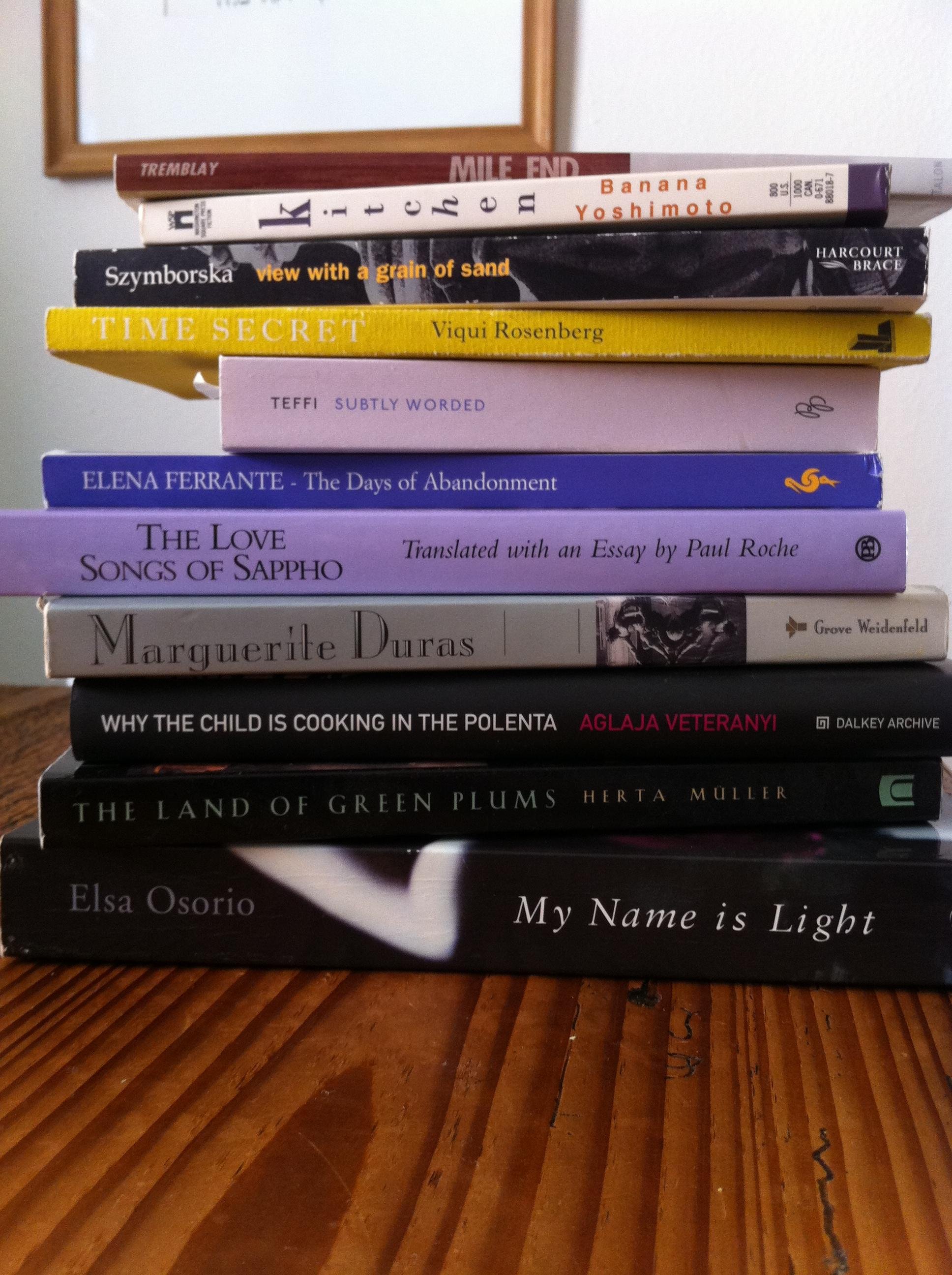 Death in Spring by Mercè Rodoreda, translated from Catalan by Martha Tennent (Open Letter, 2009). A gorgeously written and harrowing novel about cruelty among humans and violence in nature.Days of Abandonment by Elena Ferrante, translated from Italian by Ann Goldstein (Europa Editions, 2005). A dark, slender novel about a woman abandoned by her husband spiraling into terrifying psychological territory, with a helpful dash of absurd humor and redemption. After devouring this book, anything else was VERY difficult to get into. So good. This brief review in The New Yorker is spot on. I have not cracked open her more recent Neapolitan series, but it is definitely on the docket.The End of the Story by Liliana Heker, translated from Spanish by Andrea G. Labinger (Biblioasis, 2012). Another dark novel. I'm sensing a trend? This metafictional work explores Argentina's Dirty War. I reviewed it for Ploughshares.Death as a Side Effect by Ana Maria Shua, translated from Spanish by Andrea G. Labinger (University of Nebraska Press, 2010). As I note briefly in my review of Heker's novel, Shua's is "dark and wry and screwed up in the best possible dystopian way." Is it weird to quote myself? Oh well.Dreams and Stones by Magdalena Tulli, translated from Polish by Bill Johnston (Archipelago Books, 2004). I adore Archipelago for focusing on translation and producing truly beautiful books. Dreams and Stones is probably the least dark book on my list, a kind of treatise on cities and imagination.Mile End by Lise Tremblay, translated from French by Gail Scott (Talon Books, 2002). I read this novel a few times, starting in a class in college on literary Montreal. It's set in the neighborhood I lived in while at McGill, which may be part of my attachment to it. And, yes, yes, this is another dark story, about an obese pianist at a ballet school teetering toward psychosis.The Land of Green Plums by Herta Muller, translated from German by Michael Hoffman (Metropolitan Books, 1996). Muller, winner of the 2009 Nobel Prize in literature, paints a grim picture of life in Romania under Ceausescu. The language is highly poetic, and I've been working on an essay about it (among other things) for quite some time. In fact, the assignment I've given myself for the next few weeks is to cut that essay up paragraph by paragraph to figure out how to keep going with it.Why the Child is Cooking in the Polenta by Aglaja Veteranyi, translated from German by Vincent Kling (Dalkey Archive Press, 2012). Told from the point of view of an unnamed young woman, this is the story of Romanian refugees who travel through Europe as circus performers. Yes, yes, dark. But also with absurd humor. (Some criticize Muller for being humorless. I say, bah. Read her still. Not everything is funny ha ha.)Phew. That's a lot of recommendations. There are more in my pile. I may write more about them. More likely I will tweet my favorite bits from them in August. But not just August. Probably all year. WITForever!My To-Be-Read Pile. Stay tuned for reviews & more !
Death in Spring by Mercè Rodoreda, translated from Catalan by Martha Tennent (Open Letter, 2009). A gorgeously written and harrowing novel about cruelty among humans and violence in nature.Days of Abandonment by Elena Ferrante, translated from Italian by Ann Goldstein (Europa Editions, 2005). A dark, slender novel about a woman abandoned by her husband spiraling into terrifying psychological territory, with a helpful dash of absurd humor and redemption. After devouring this book, anything else was VERY difficult to get into. So good. This brief review in The New Yorker is spot on. I have not cracked open her more recent Neapolitan series, but it is definitely on the docket.The End of the Story by Liliana Heker, translated from Spanish by Andrea G. Labinger (Biblioasis, 2012). Another dark novel. I'm sensing a trend? This metafictional work explores Argentina's Dirty War. I reviewed it for Ploughshares.Death as a Side Effect by Ana Maria Shua, translated from Spanish by Andrea G. Labinger (University of Nebraska Press, 2010). As I note briefly in my review of Heker's novel, Shua's is "dark and wry and screwed up in the best possible dystopian way." Is it weird to quote myself? Oh well.Dreams and Stones by Magdalena Tulli, translated from Polish by Bill Johnston (Archipelago Books, 2004). I adore Archipelago for focusing on translation and producing truly beautiful books. Dreams and Stones is probably the least dark book on my list, a kind of treatise on cities and imagination.Mile End by Lise Tremblay, translated from French by Gail Scott (Talon Books, 2002). I read this novel a few times, starting in a class in college on literary Montreal. It's set in the neighborhood I lived in while at McGill, which may be part of my attachment to it. And, yes, yes, this is another dark story, about an obese pianist at a ballet school teetering toward psychosis.The Land of Green Plums by Herta Muller, translated from German by Michael Hoffman (Metropolitan Books, 1996). Muller, winner of the 2009 Nobel Prize in literature, paints a grim picture of life in Romania under Ceausescu. The language is highly poetic, and I've been working on an essay about it (among other things) for quite some time. In fact, the assignment I've given myself for the next few weeks is to cut that essay up paragraph by paragraph to figure out how to keep going with it.Why the Child is Cooking in the Polenta by Aglaja Veteranyi, translated from German by Vincent Kling (Dalkey Archive Press, 2012). Told from the point of view of an unnamed young woman, this is the story of Romanian refugees who travel through Europe as circus performers. Yes, yes, dark. But also with absurd humor. (Some criticize Muller for being humorless. I say, bah. Read her still. Not everything is funny ha ha.)Phew. That's a lot of recommendations. There are more in my pile. I may write more about them. More likely I will tweet my favorite bits from them in August. But not just August. Probably all year. WITForever!My To-Be-Read Pile. Stay tuned for reviews & more !